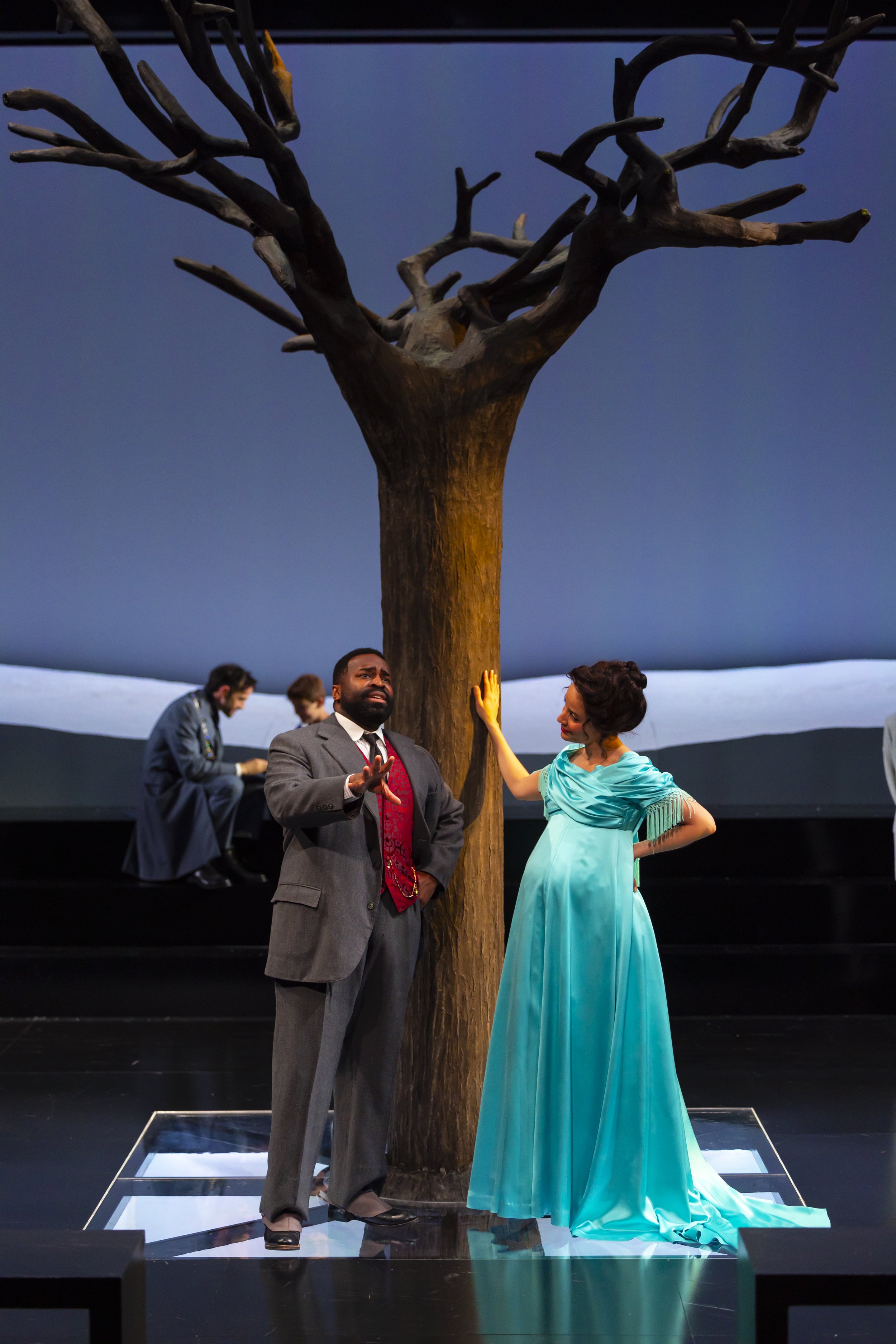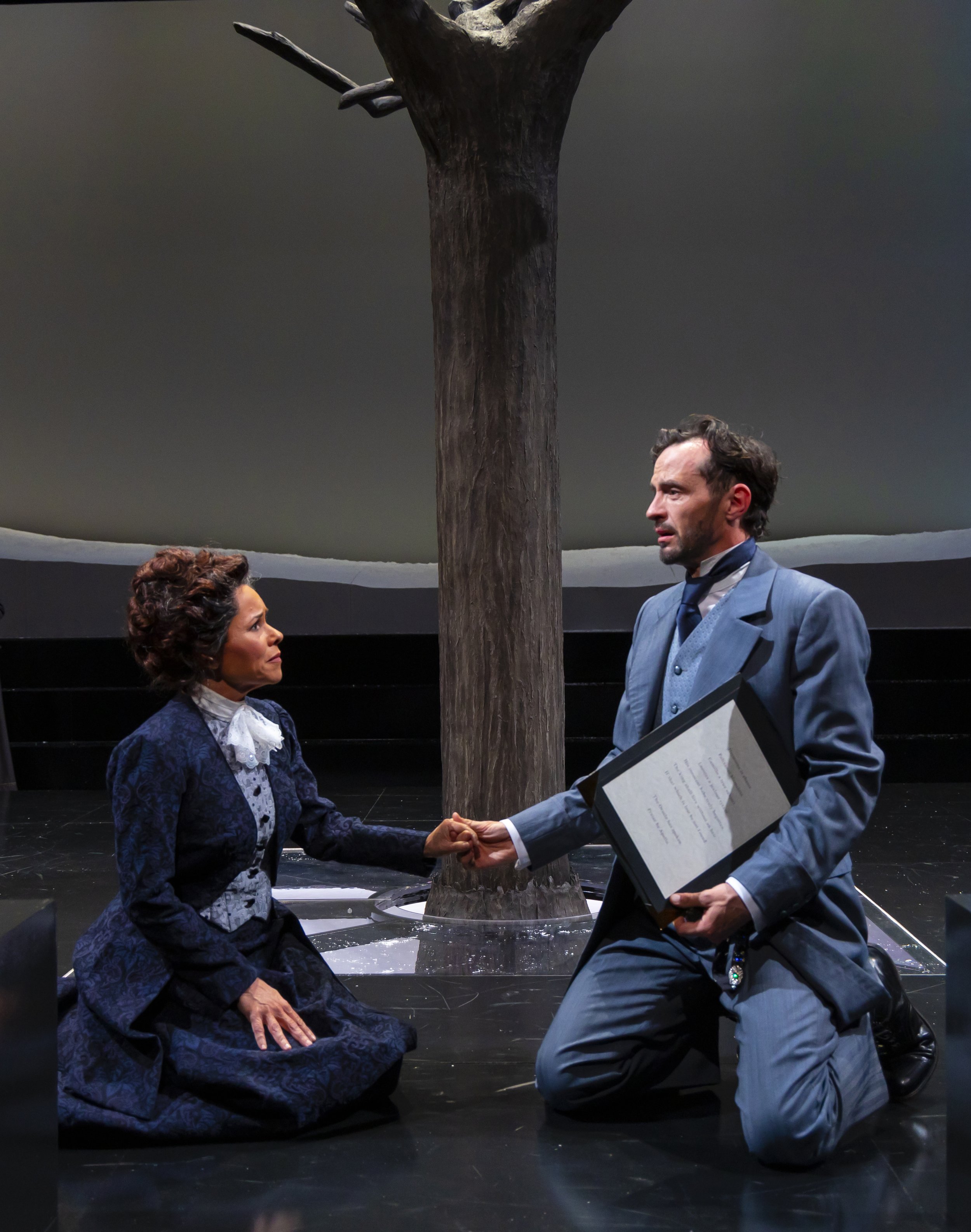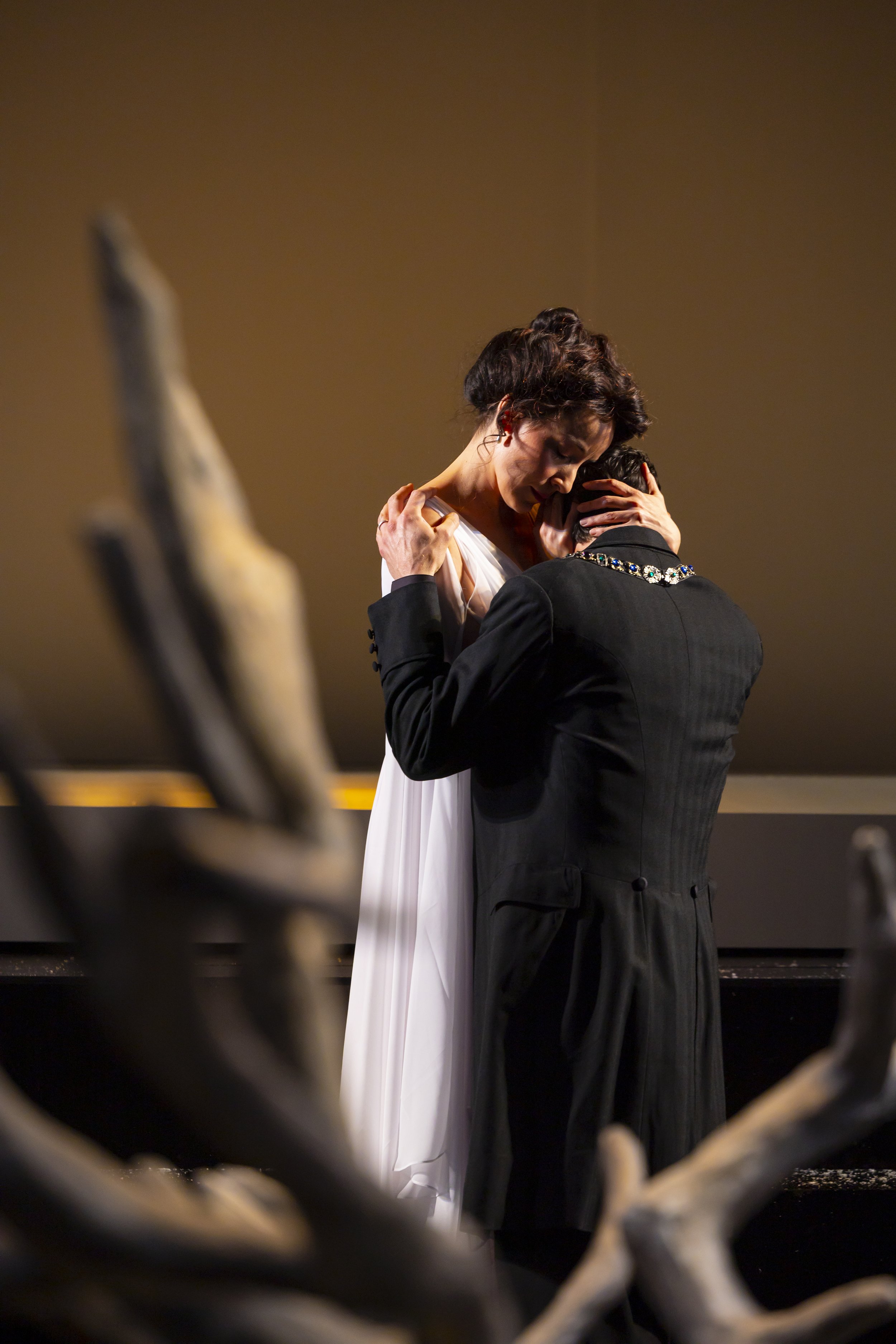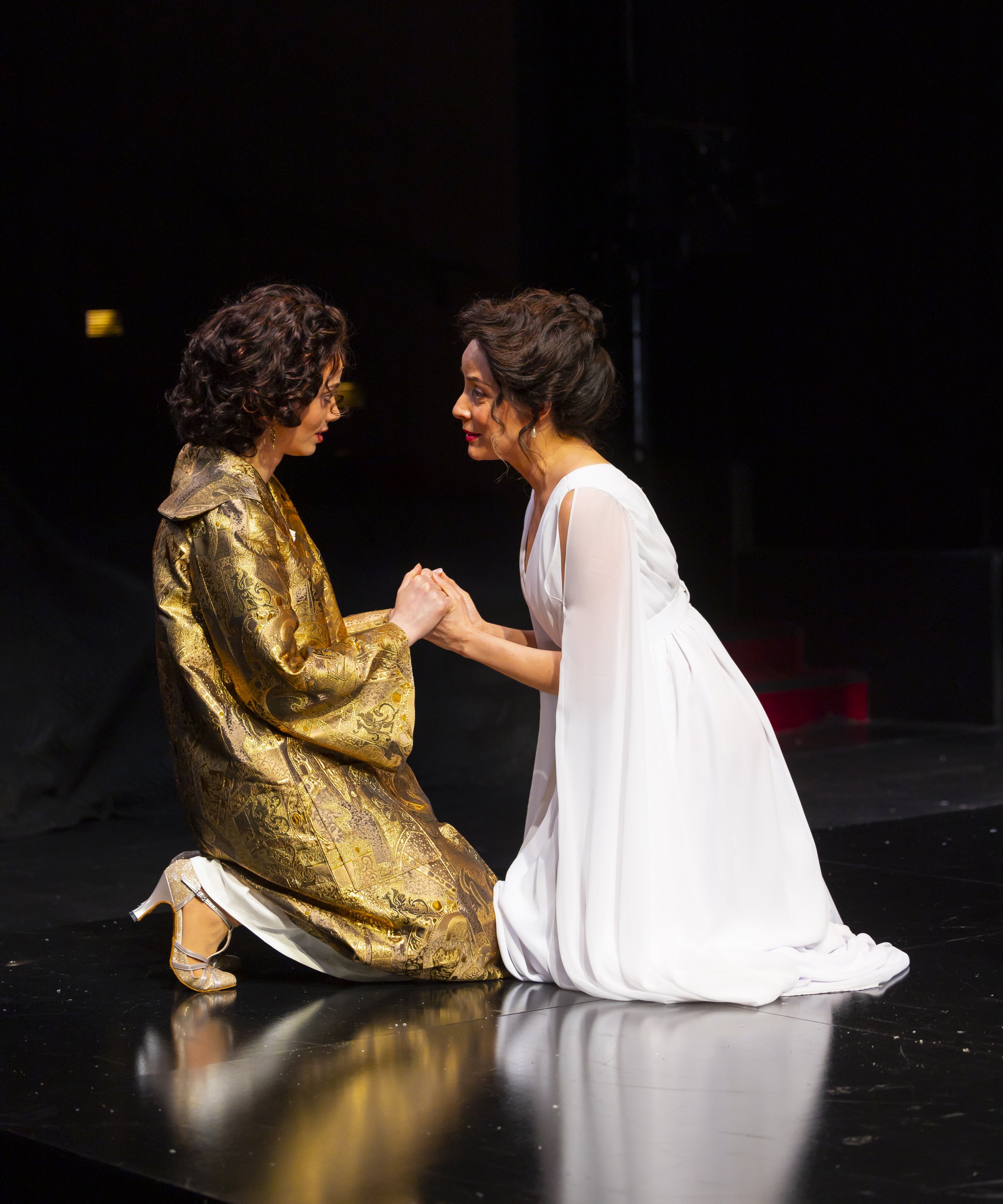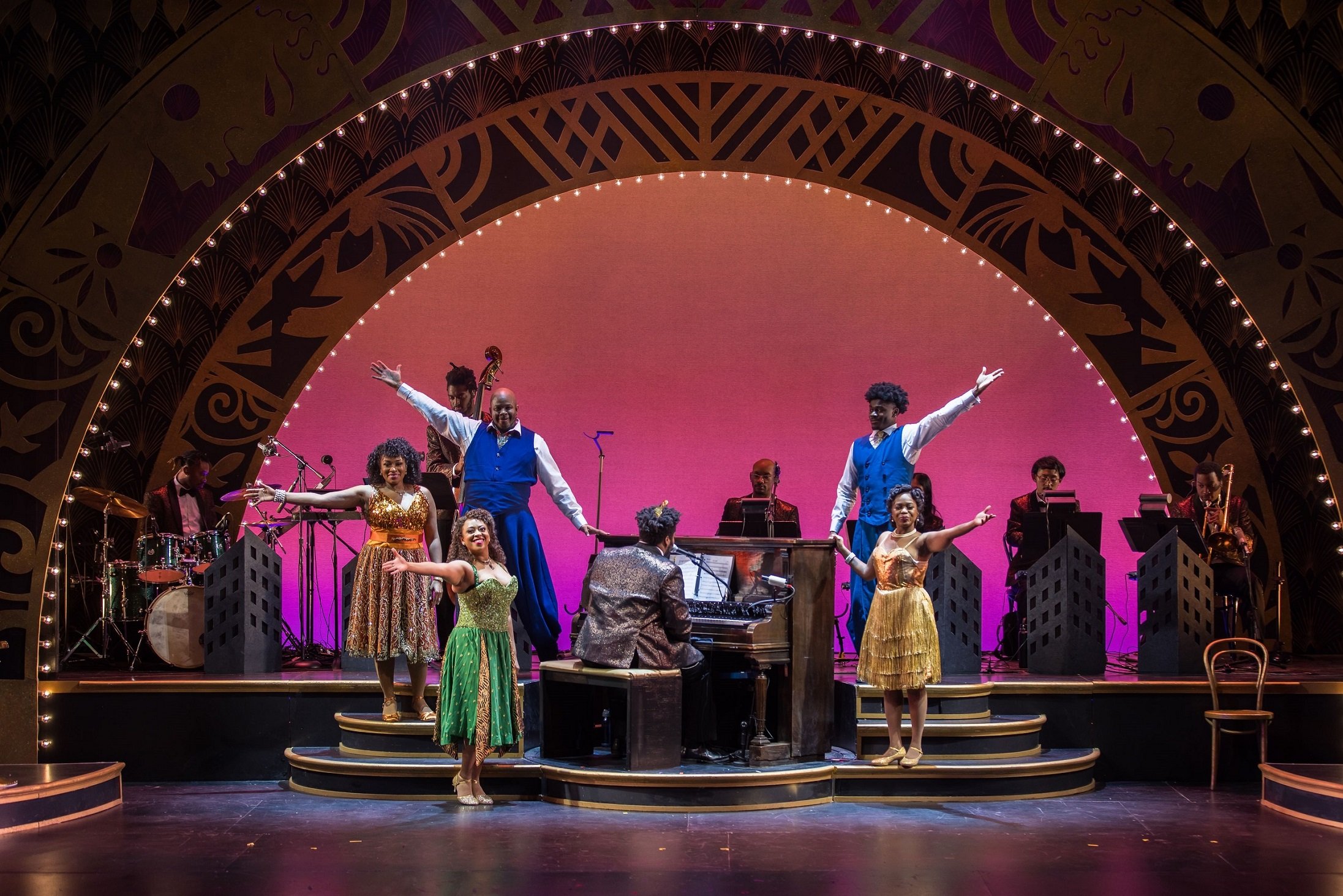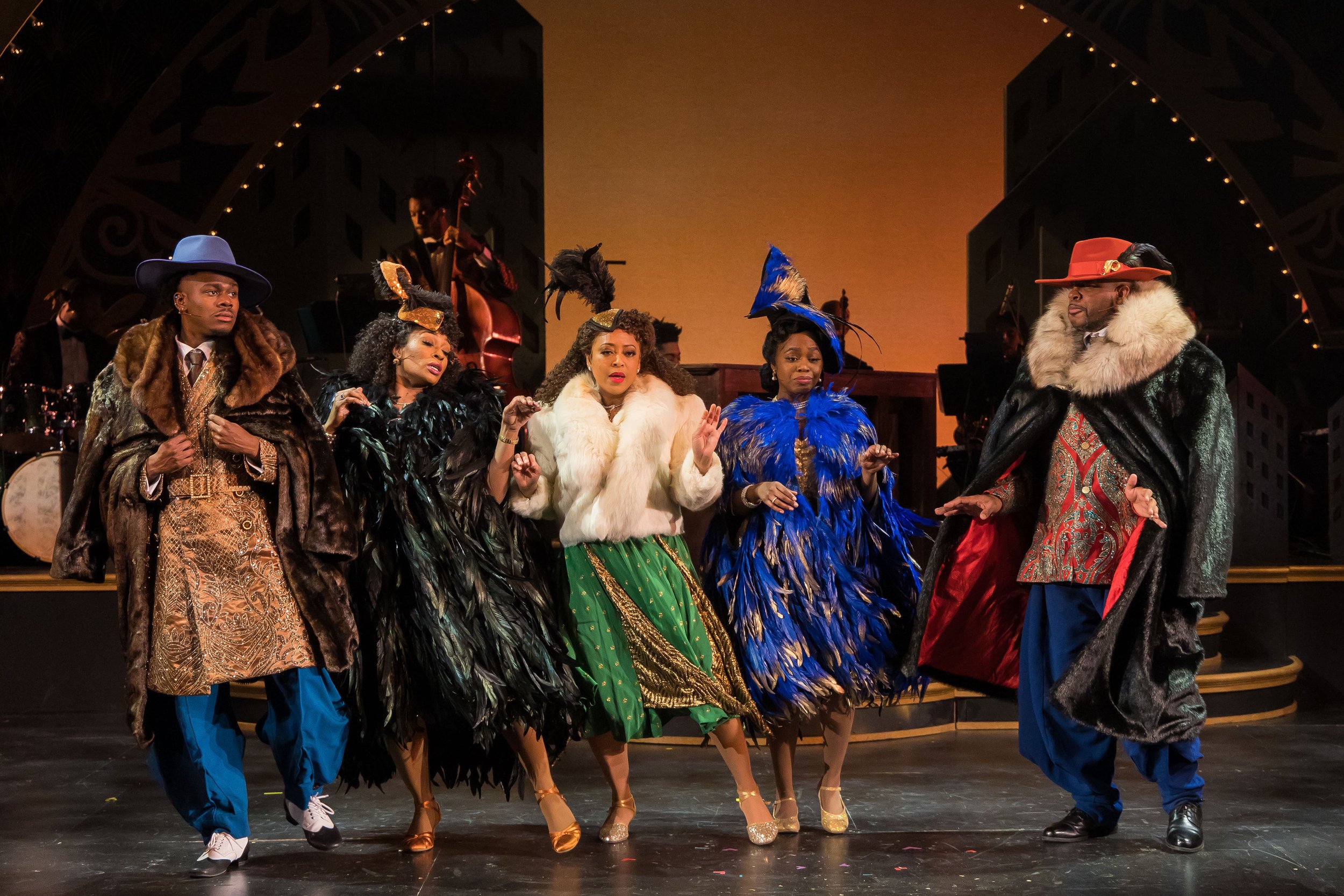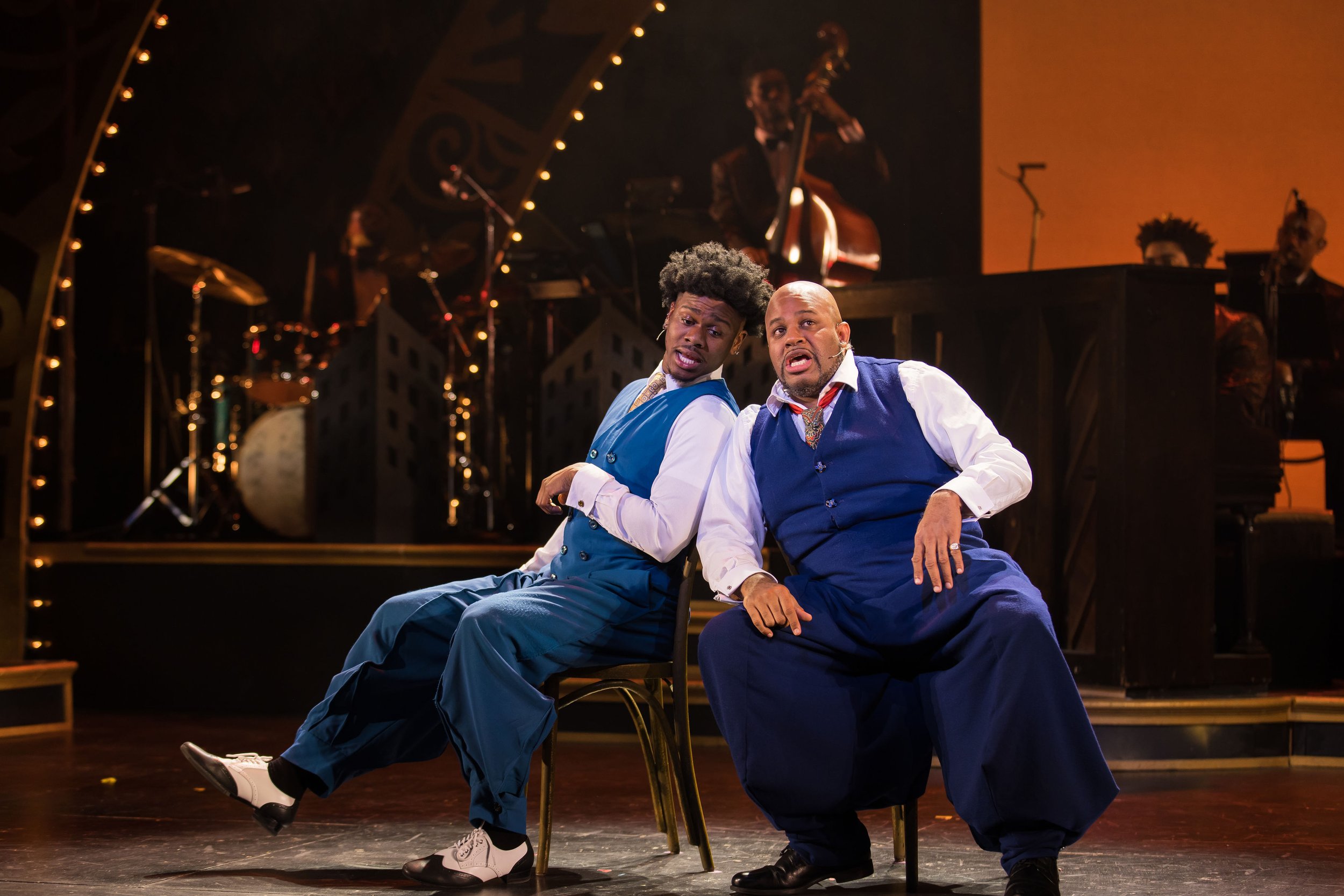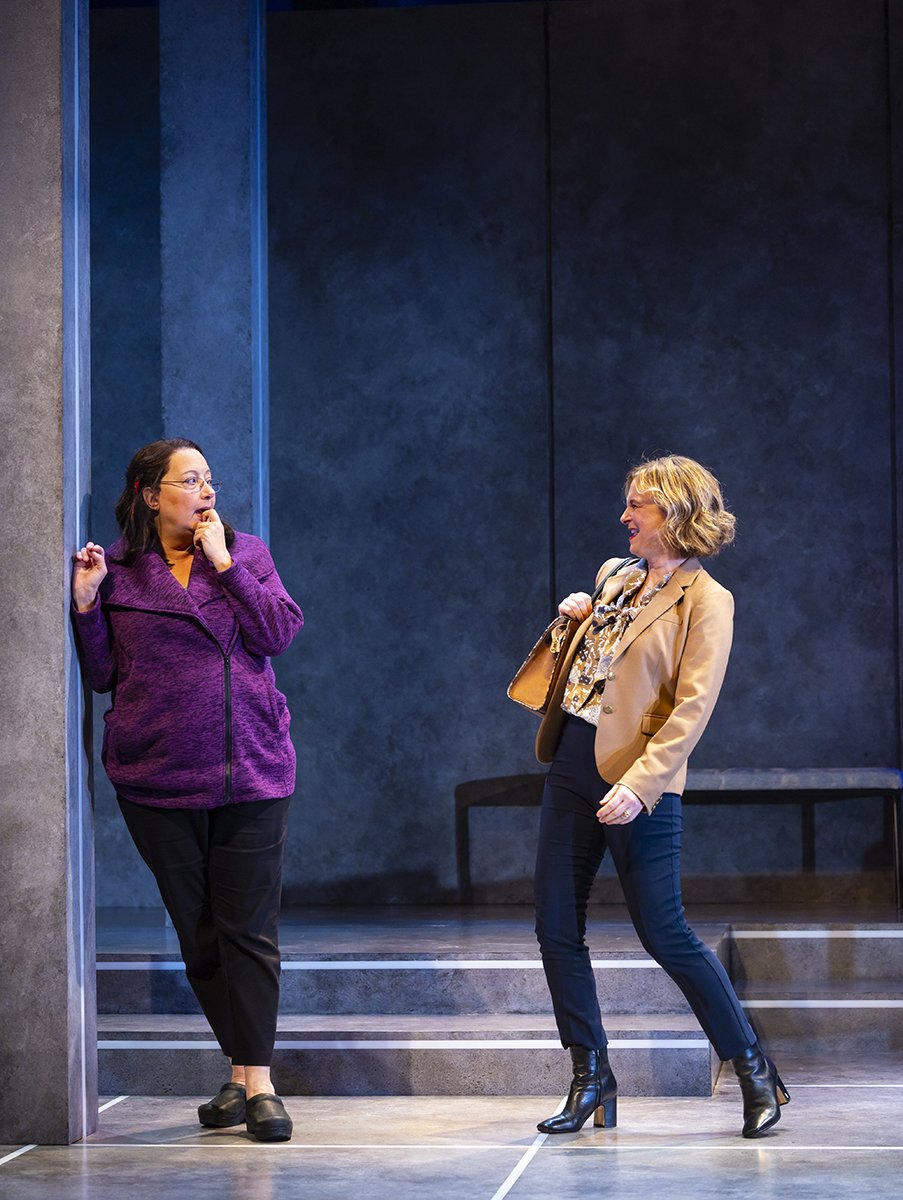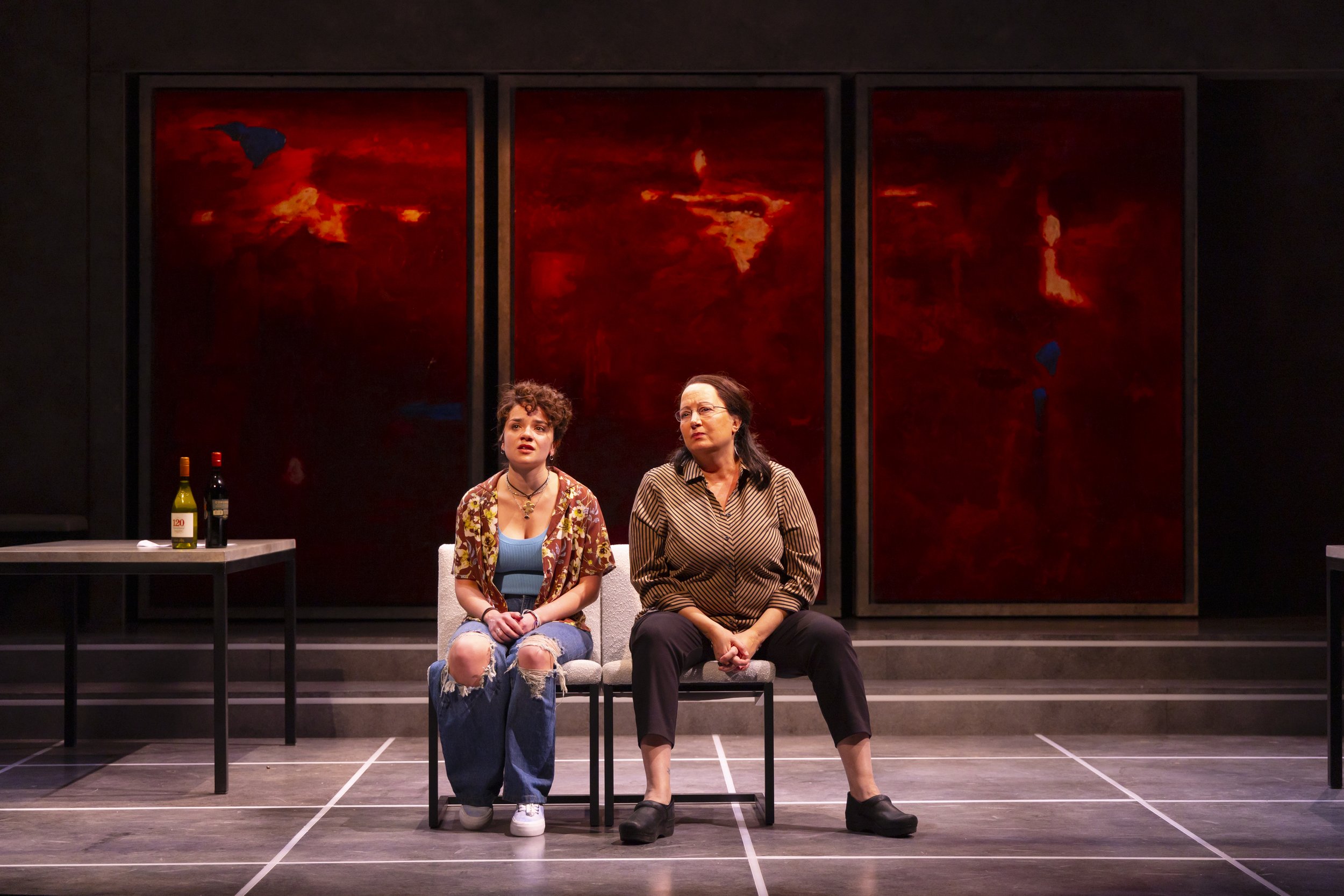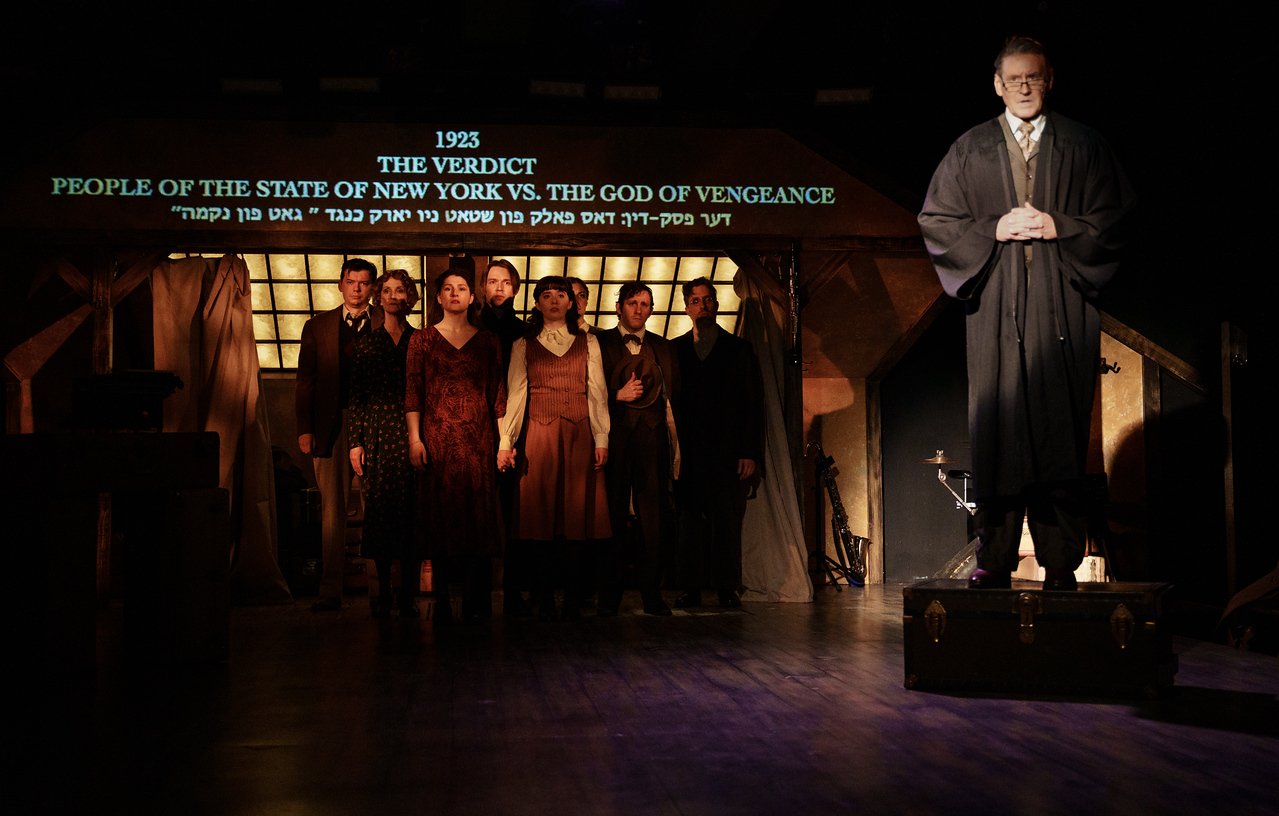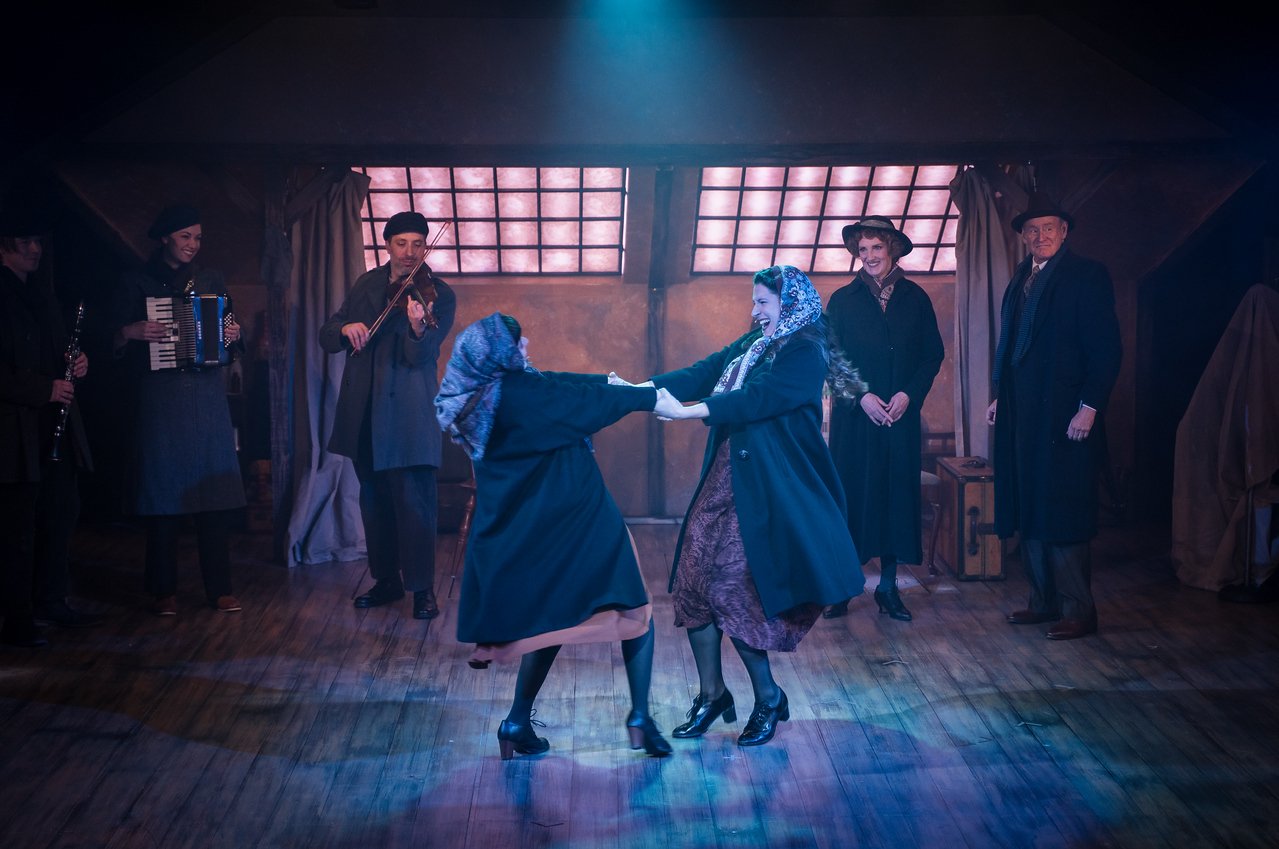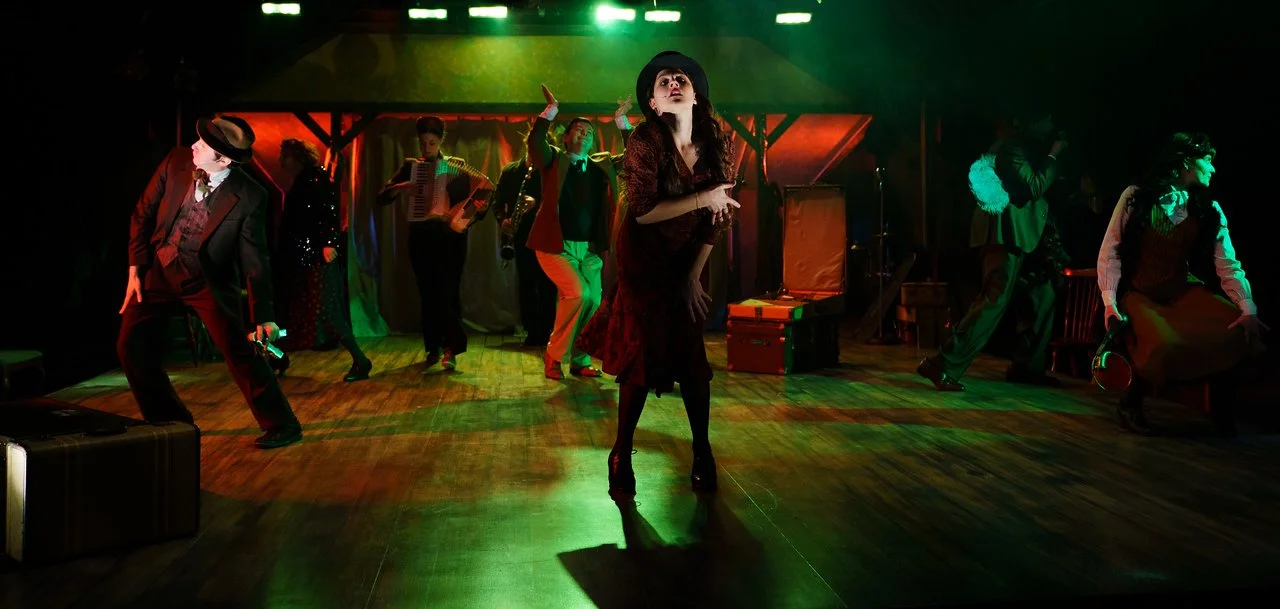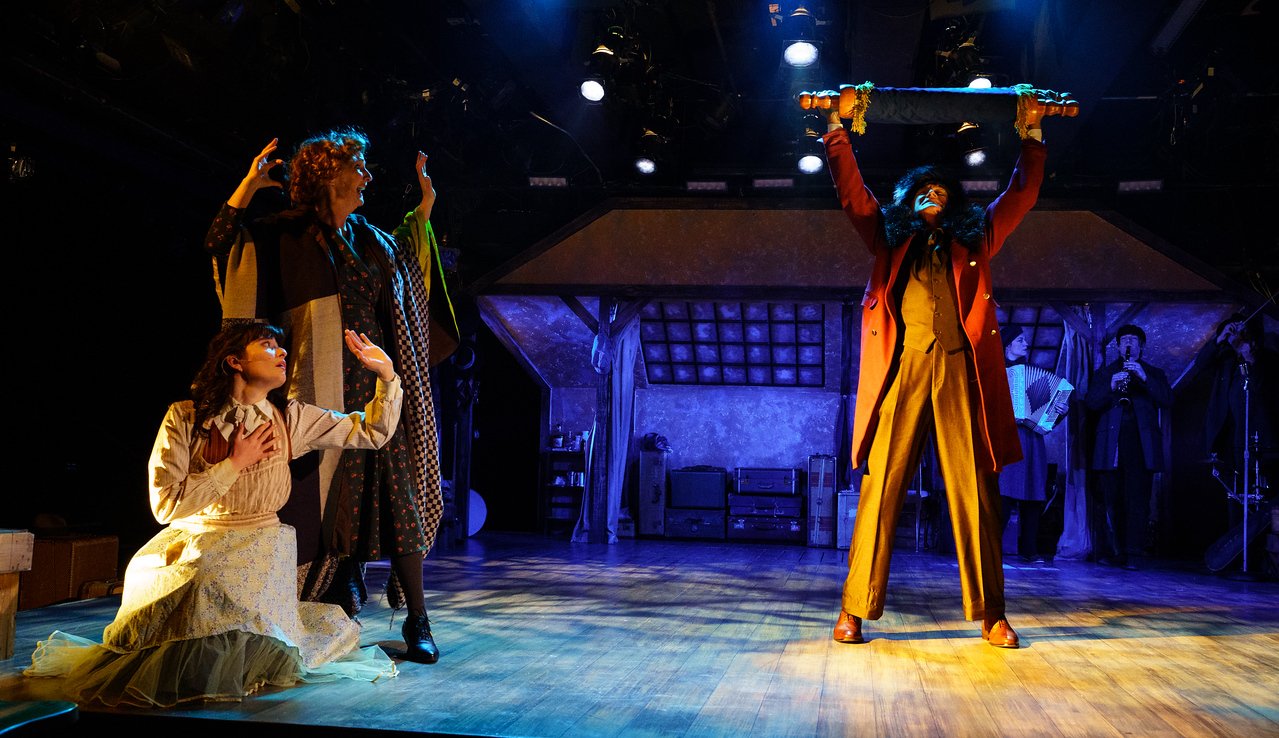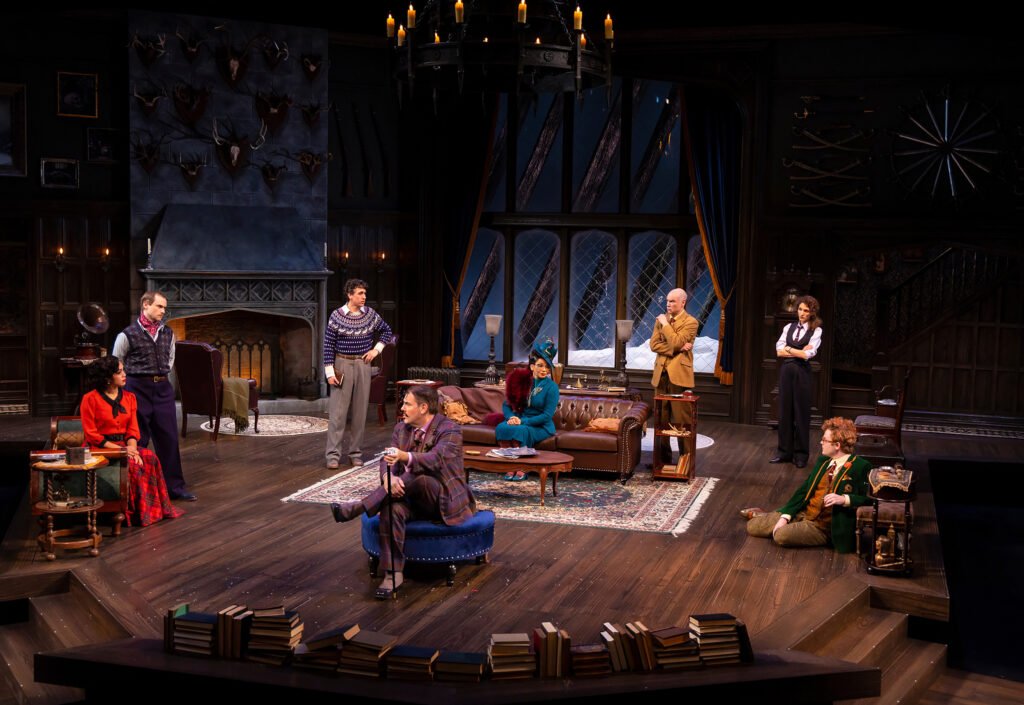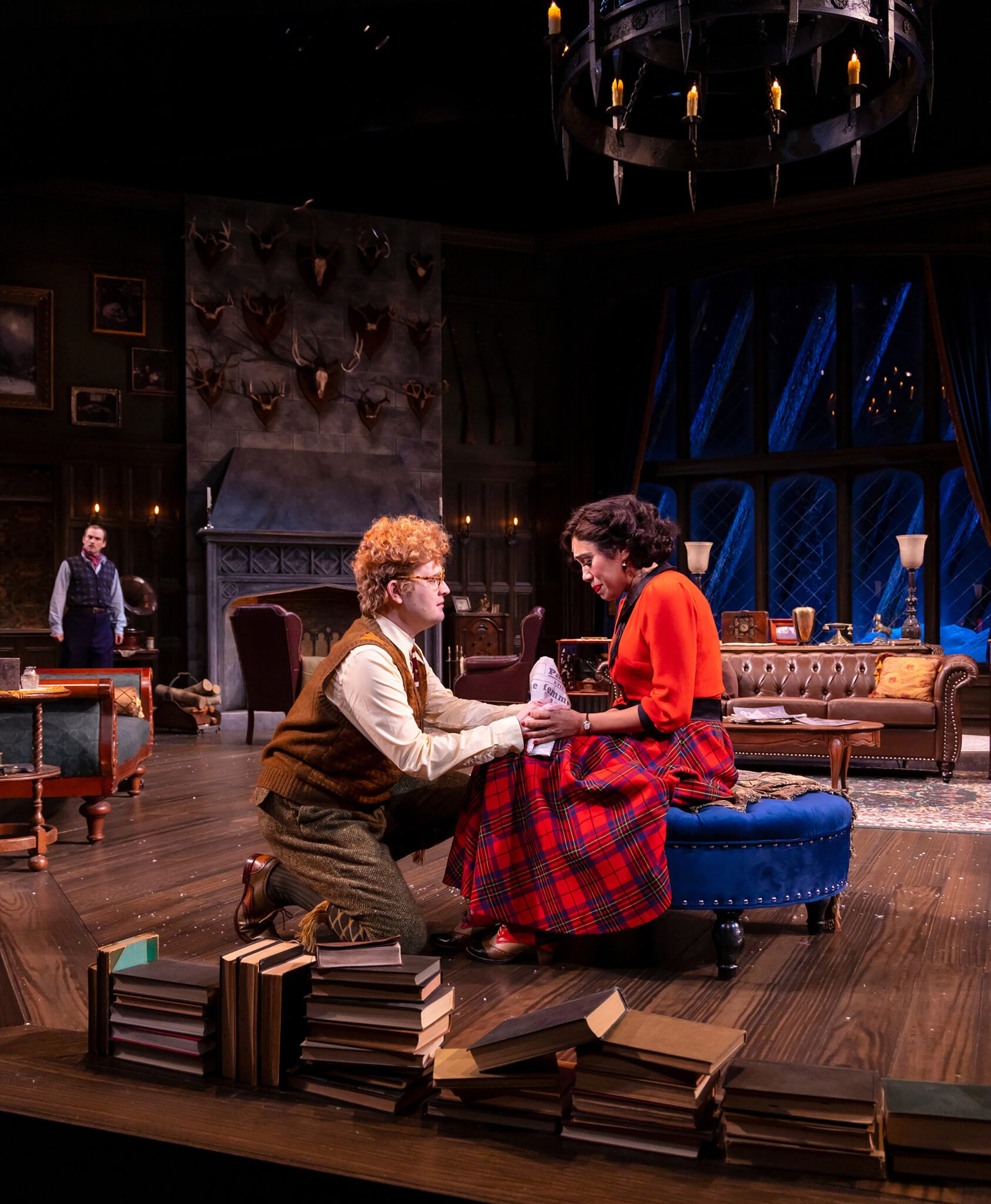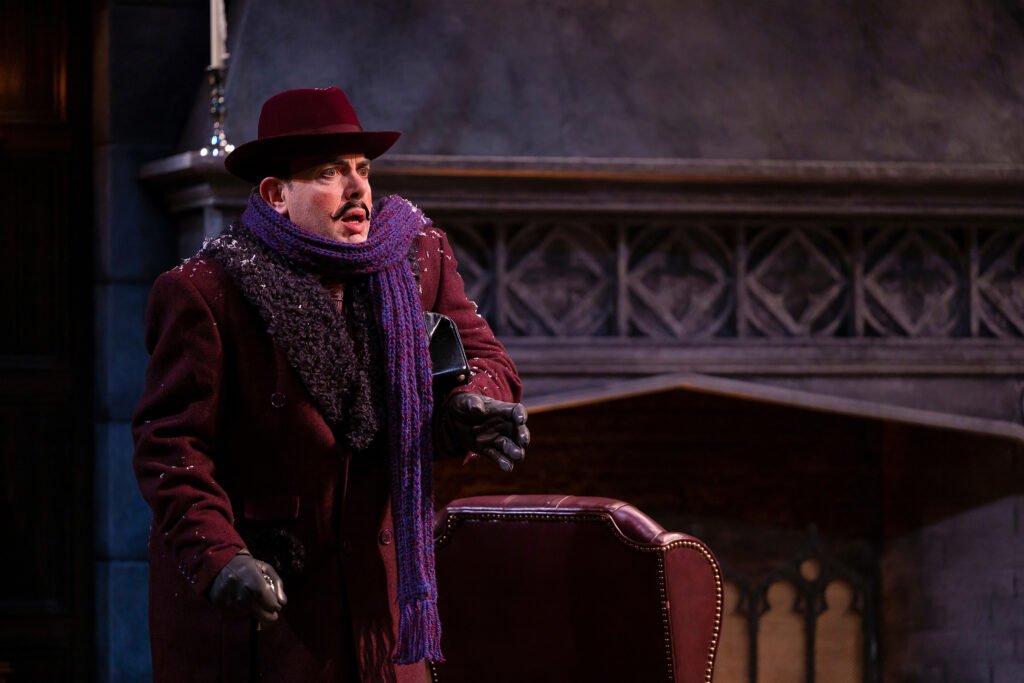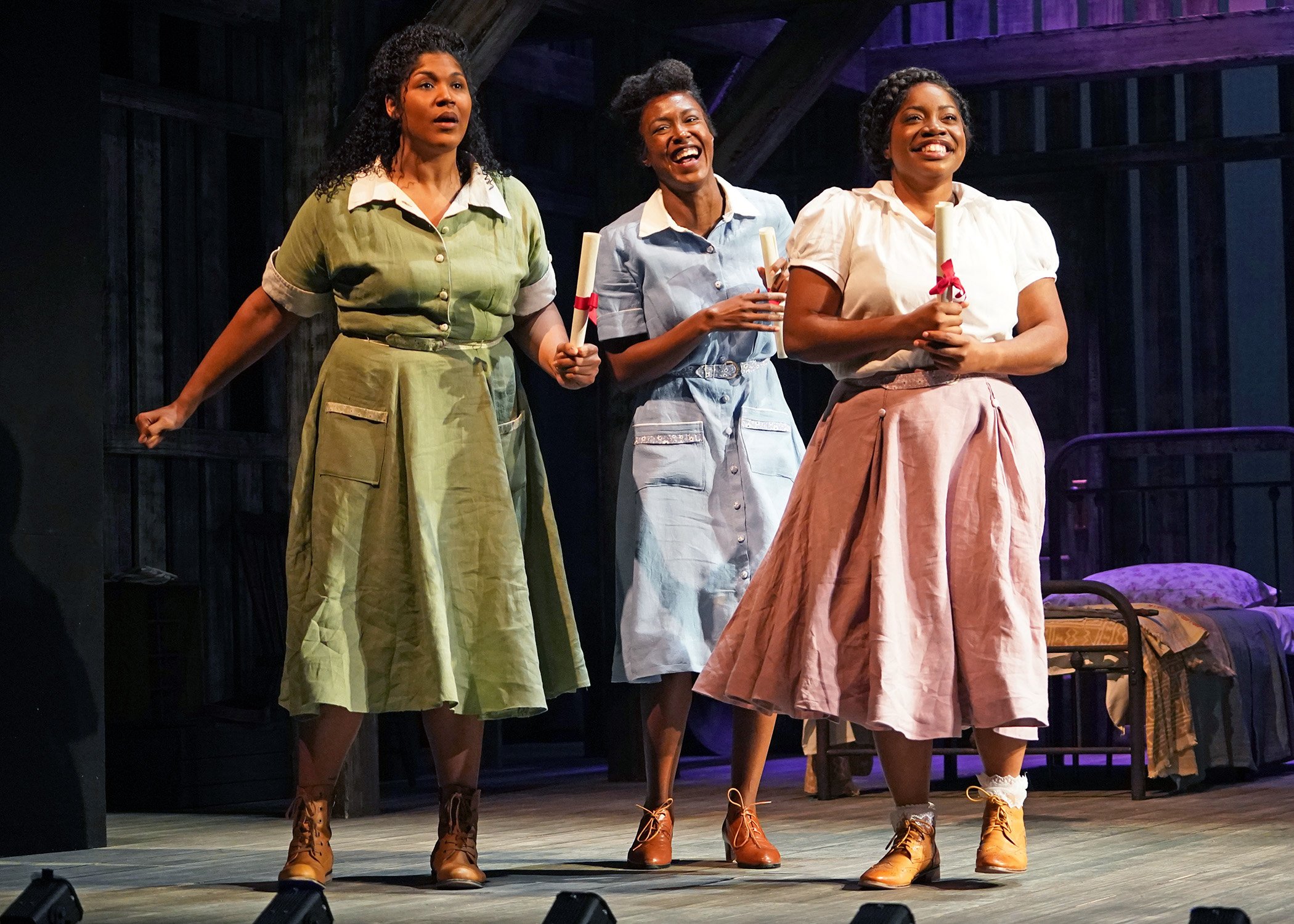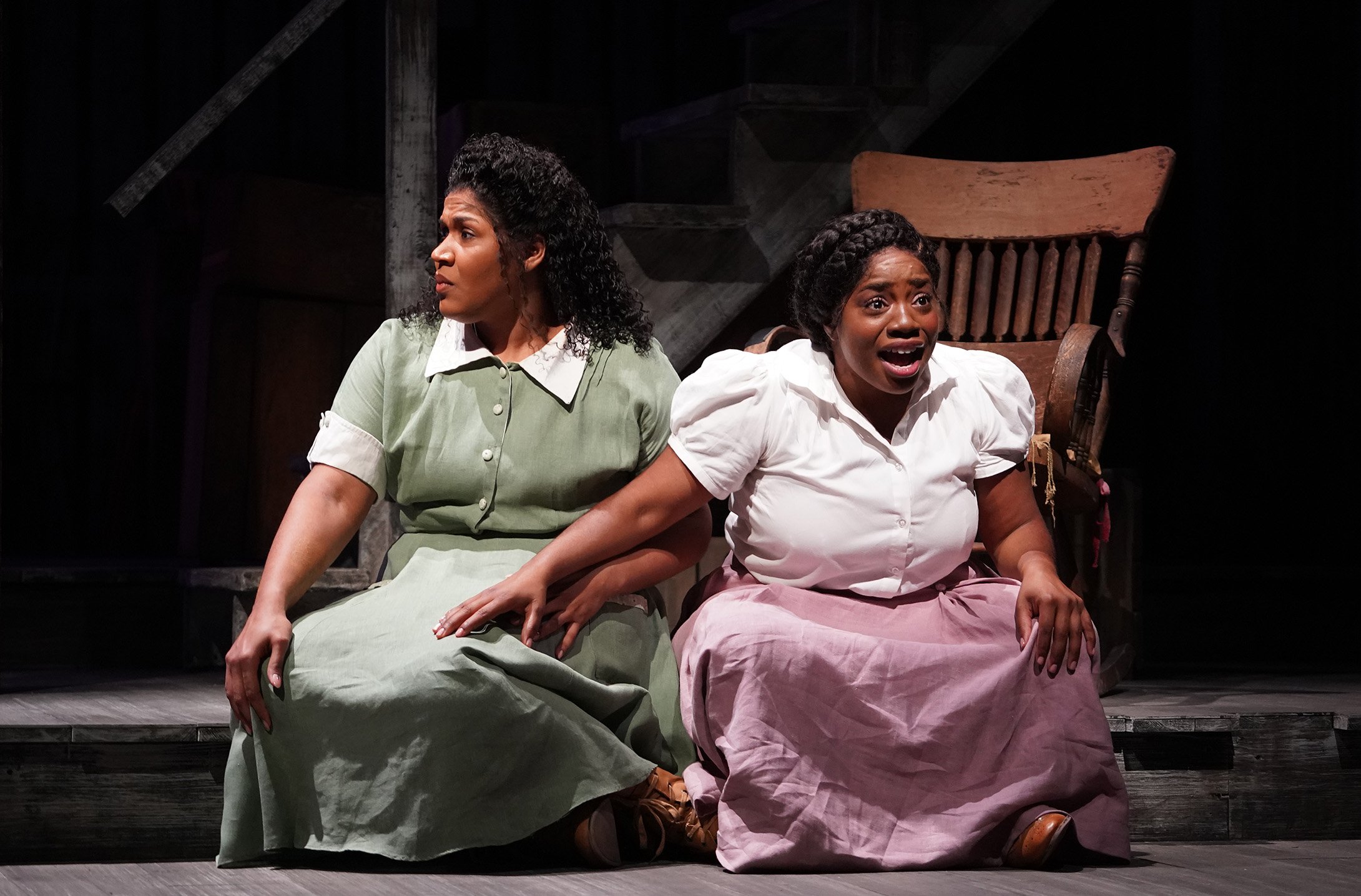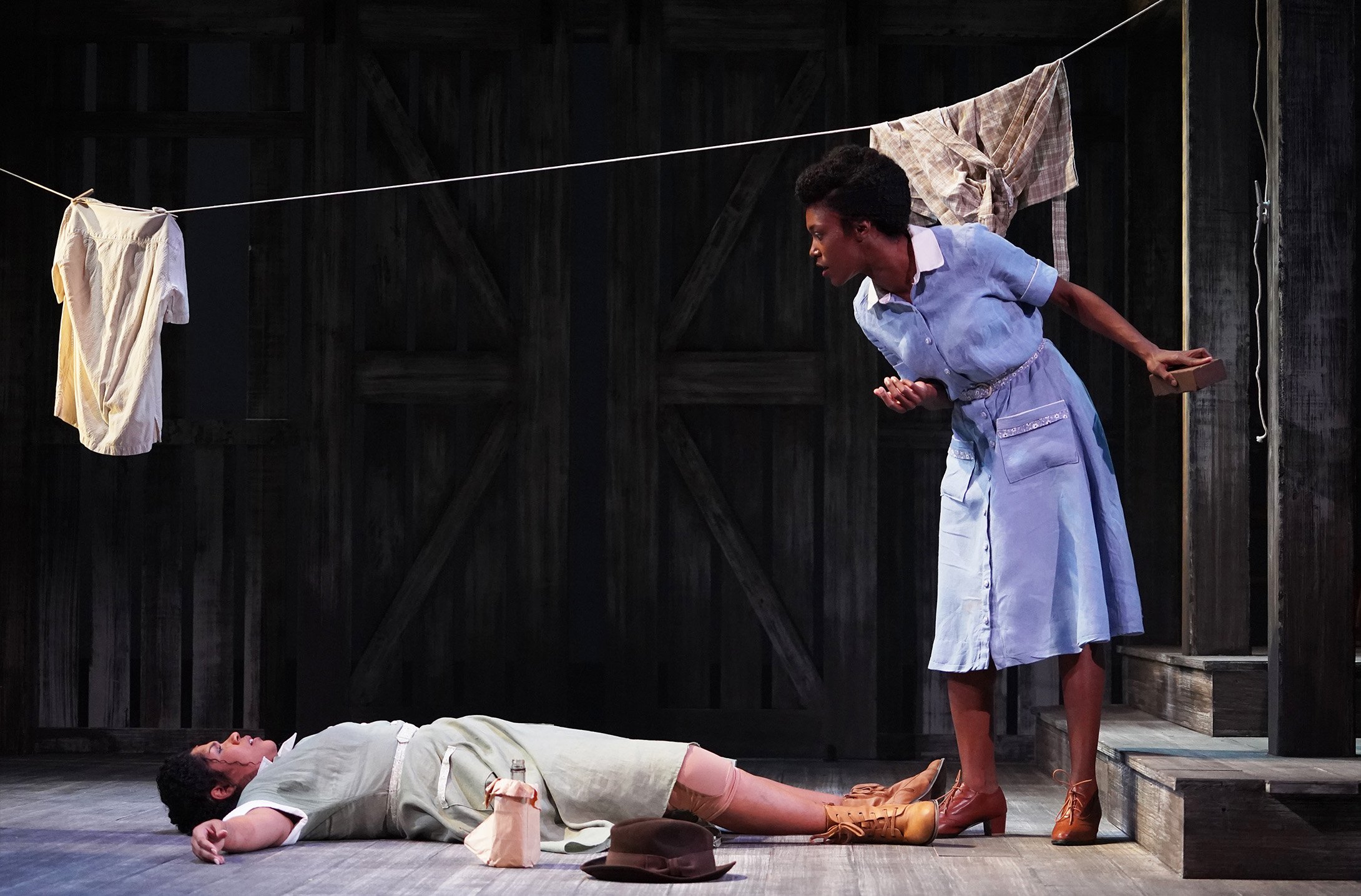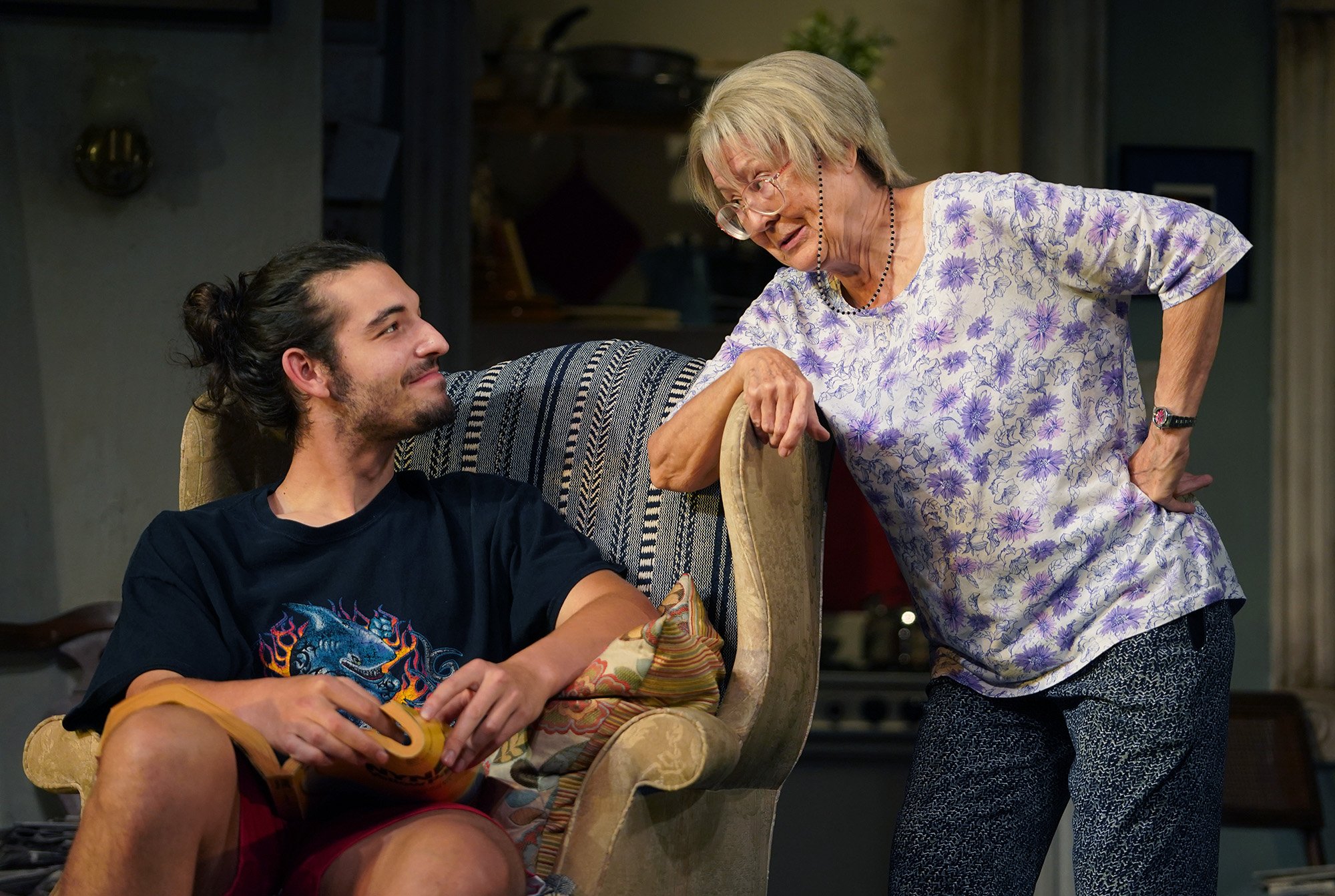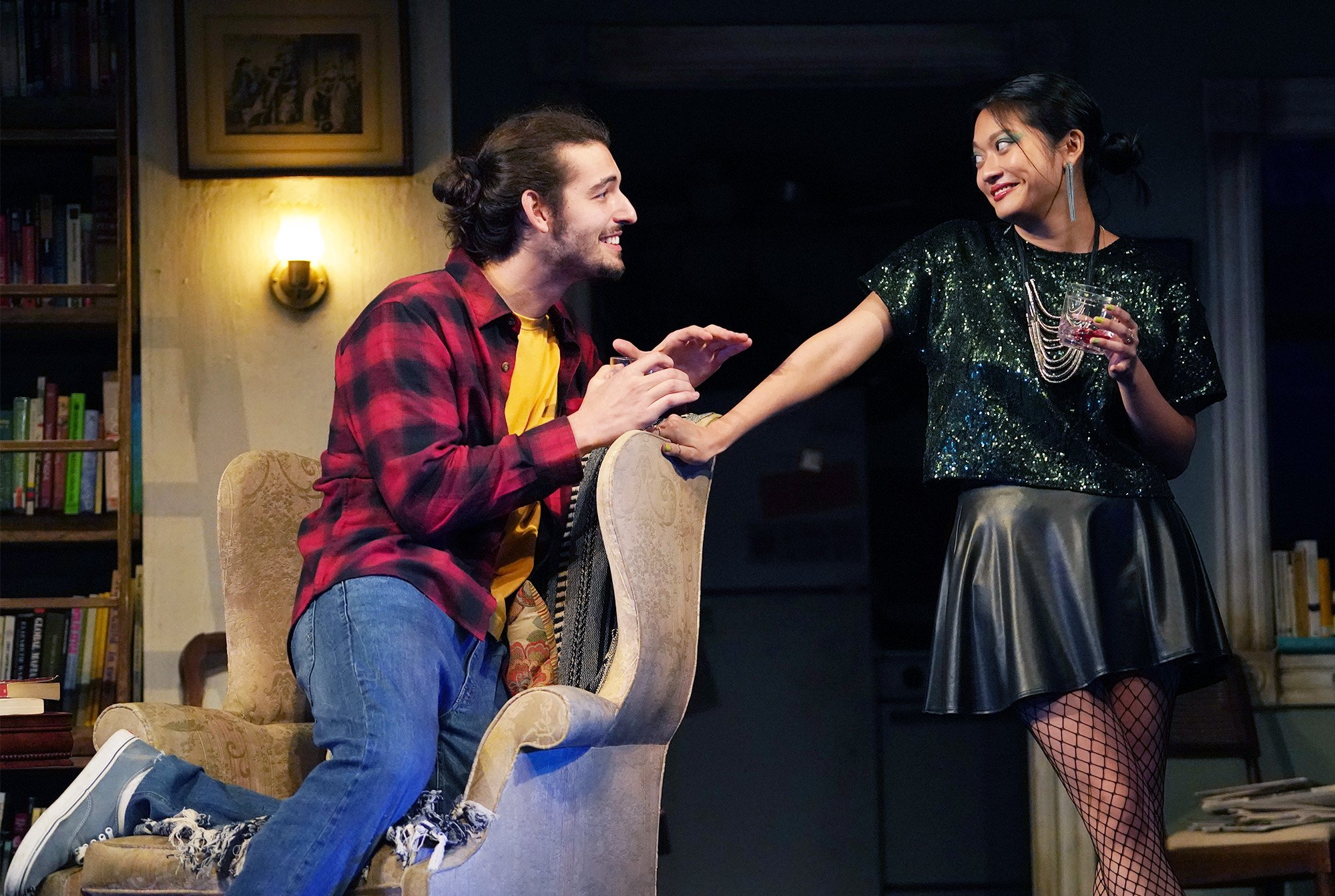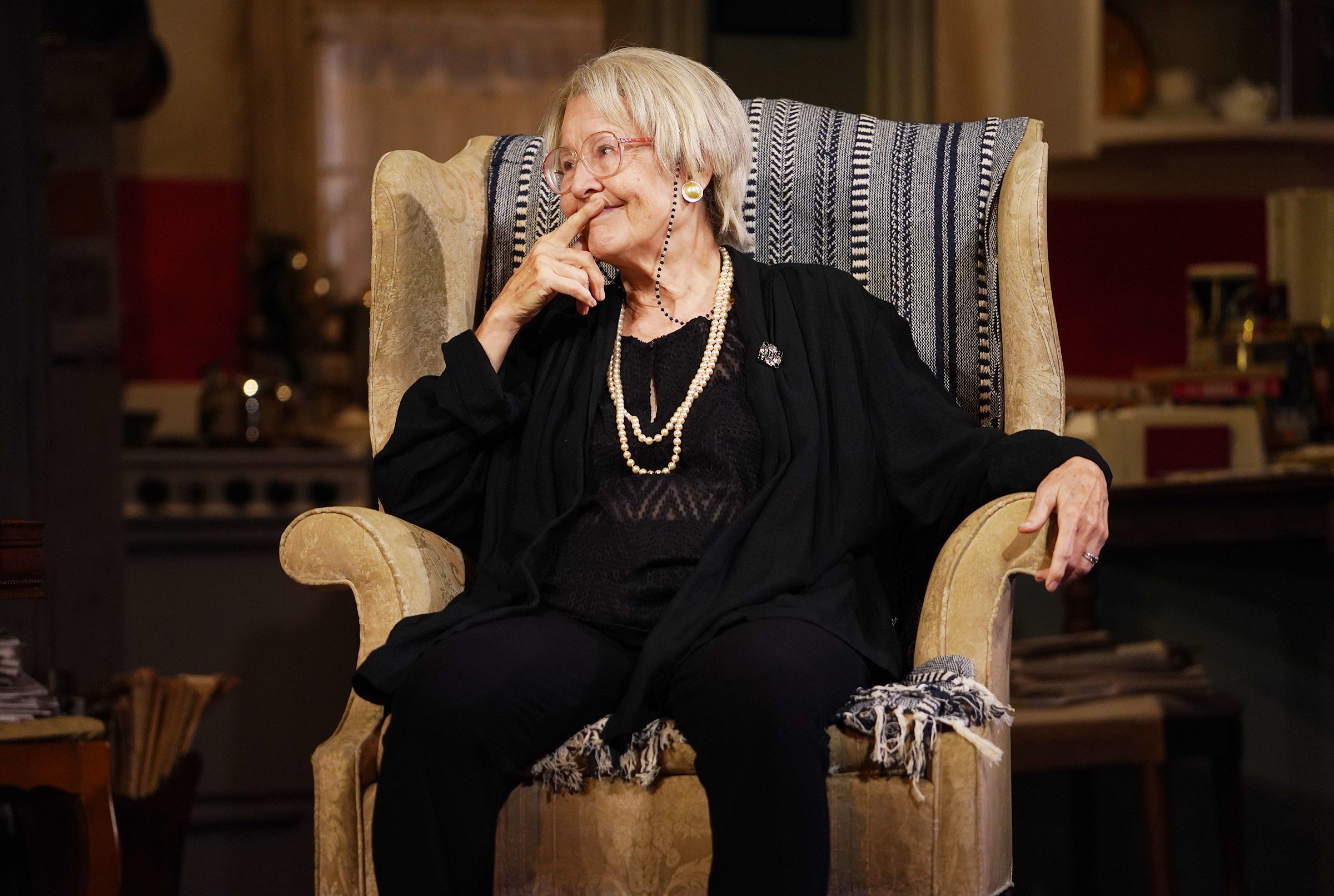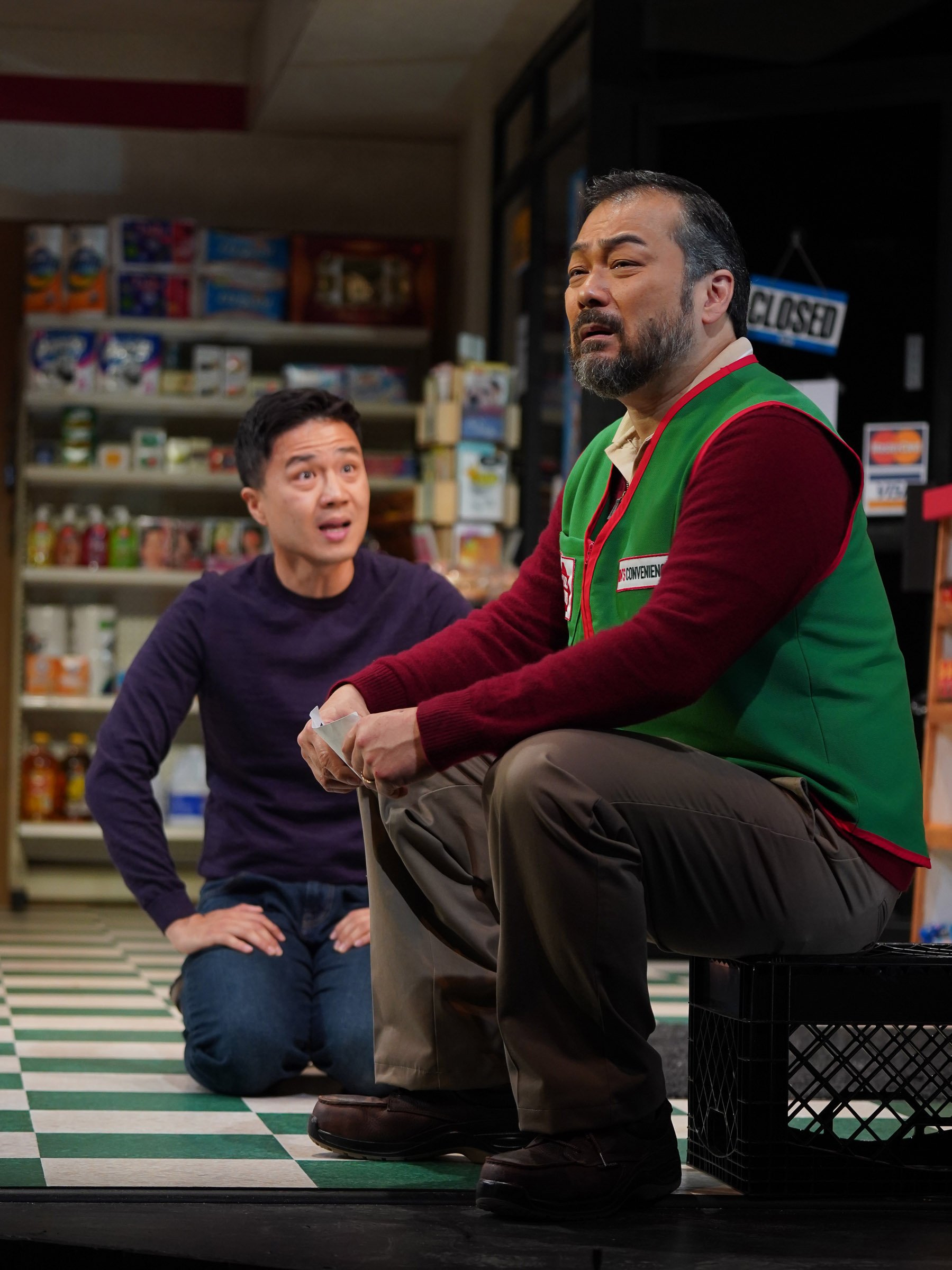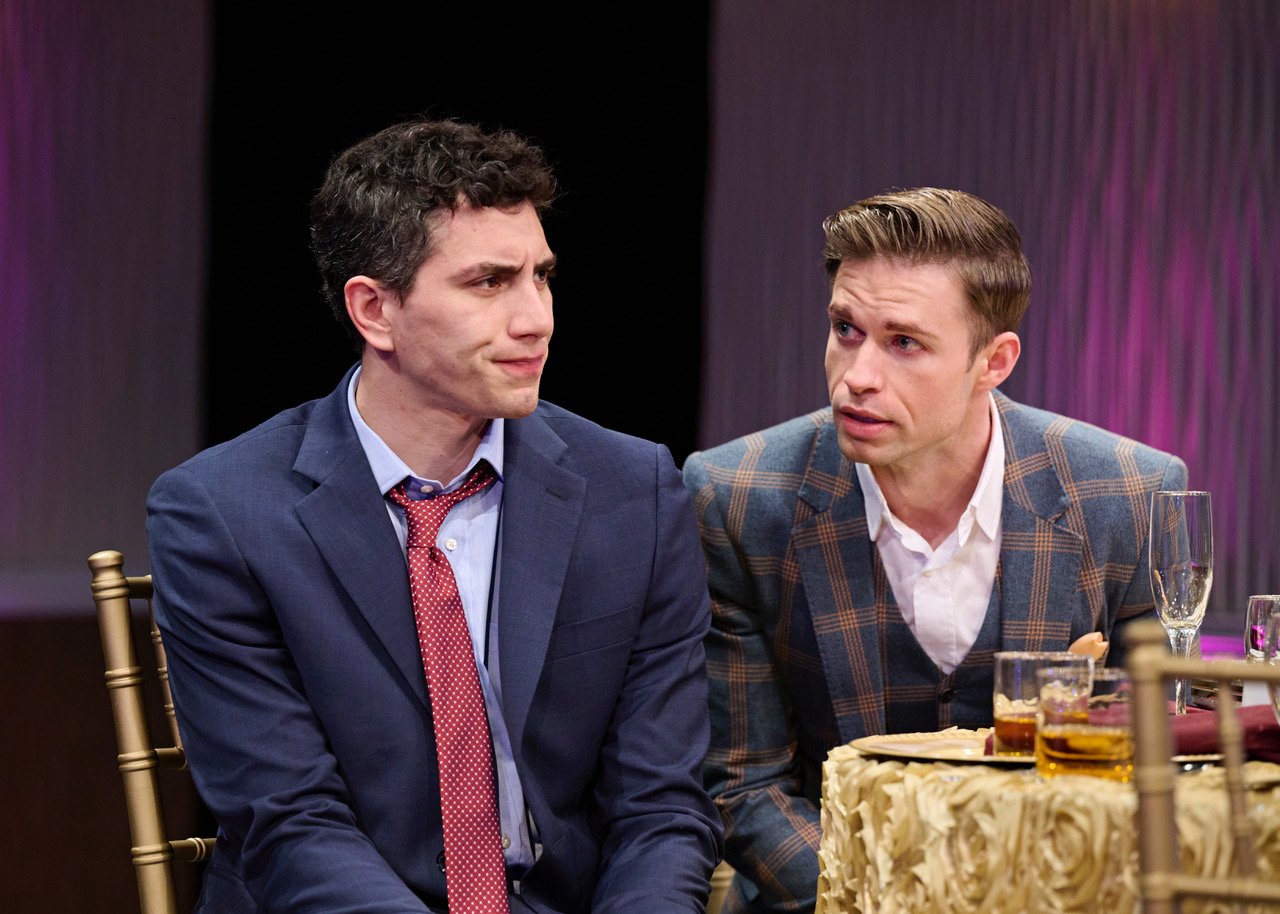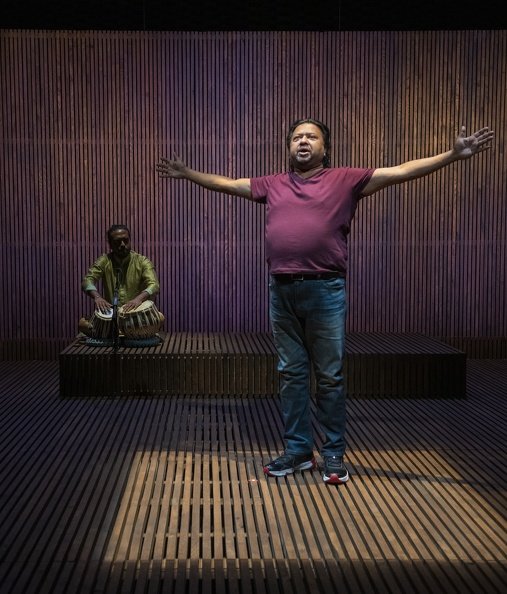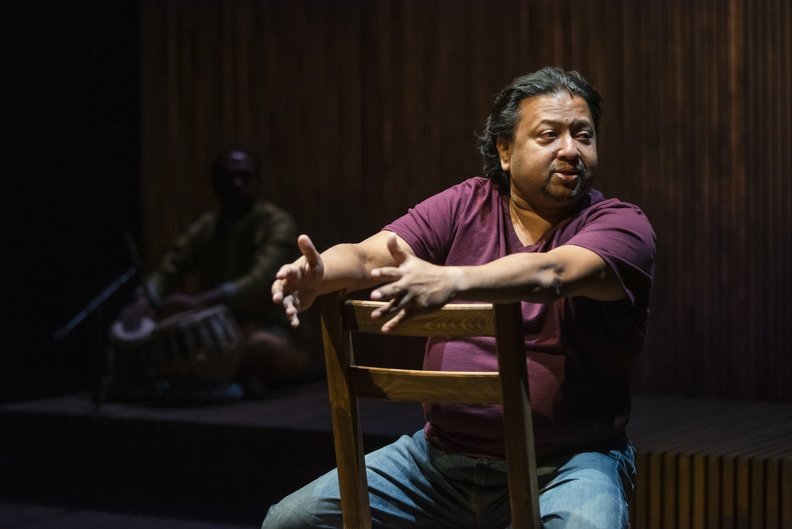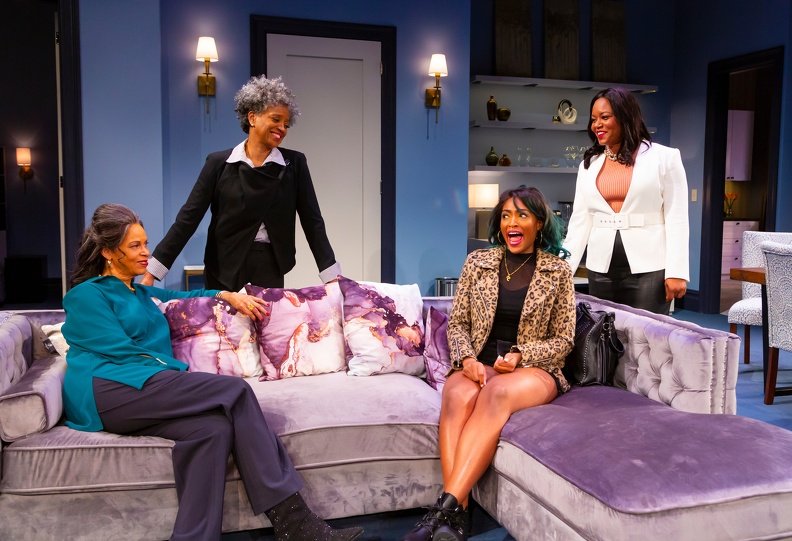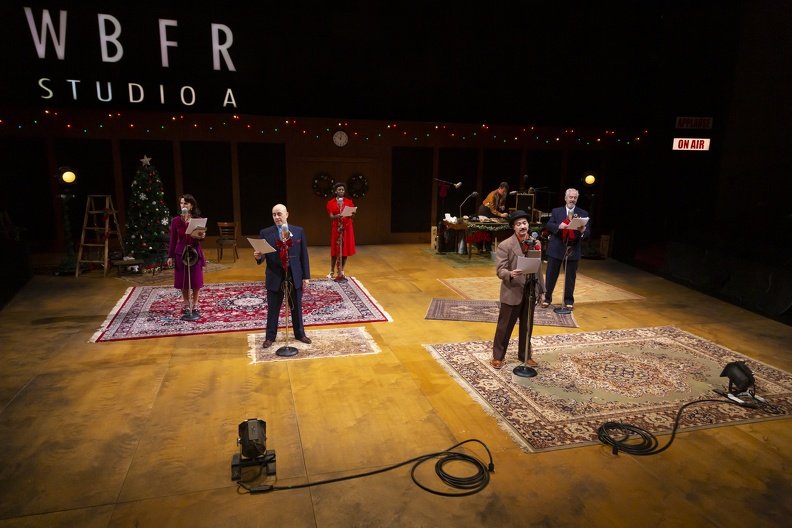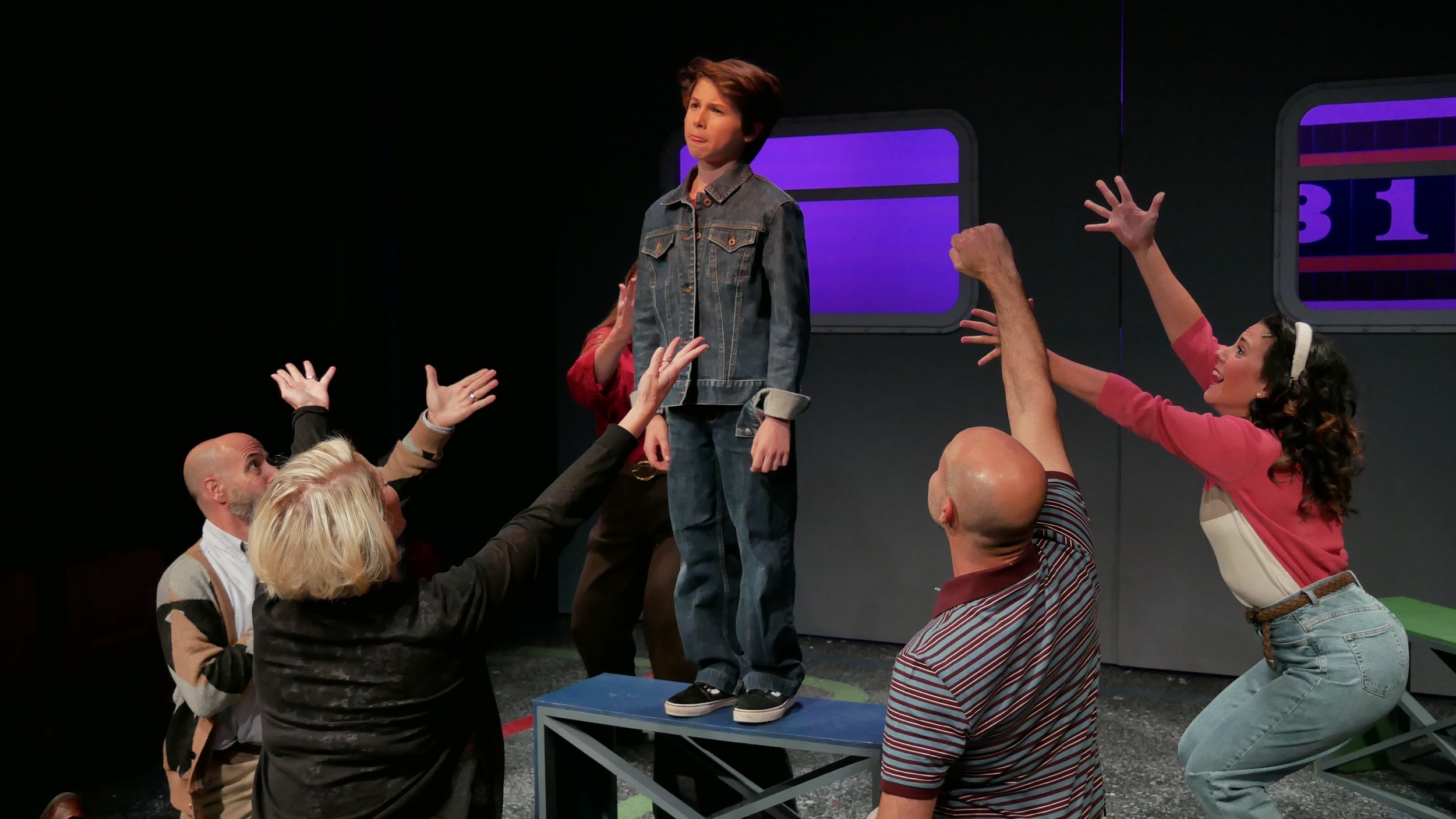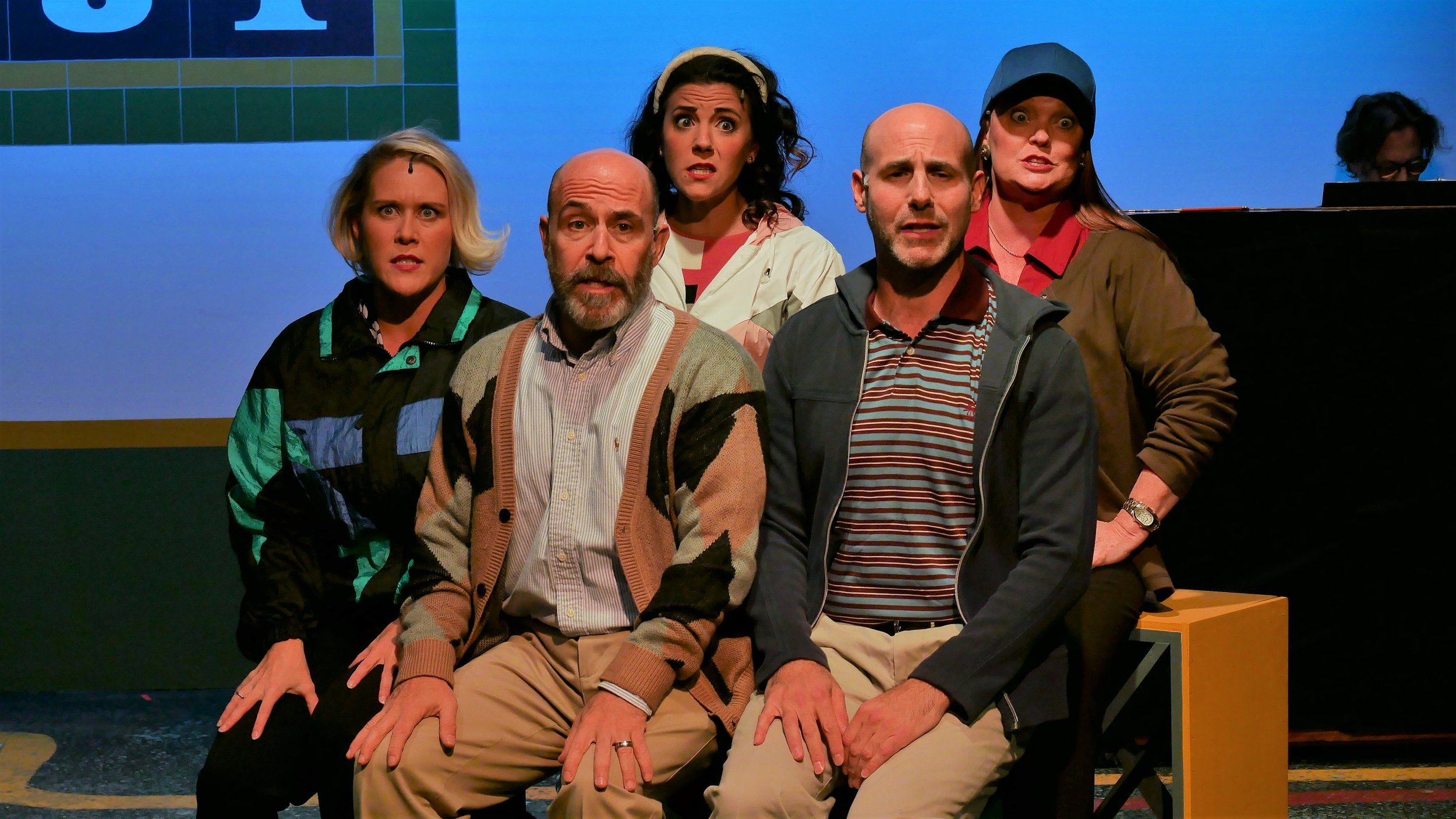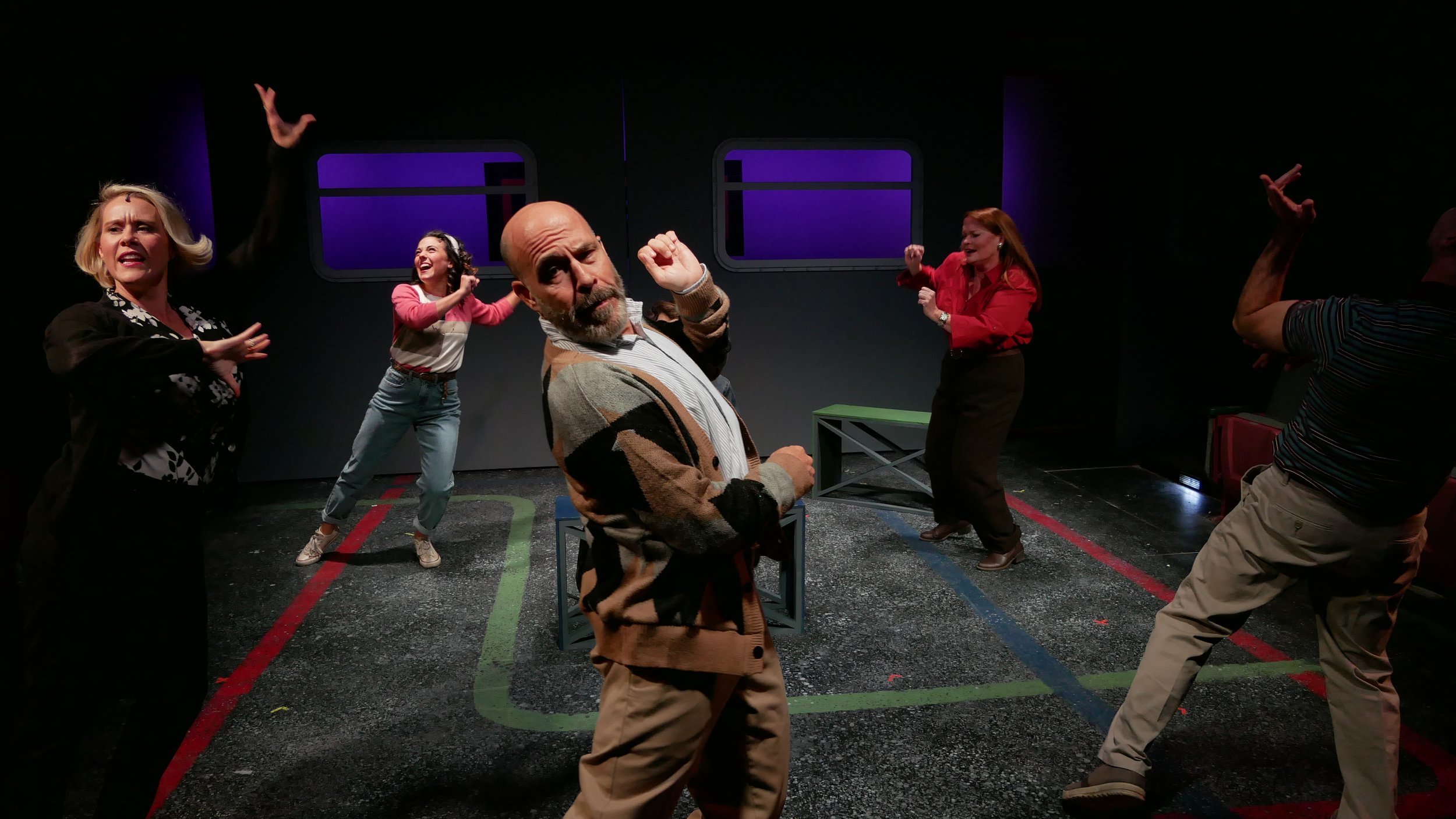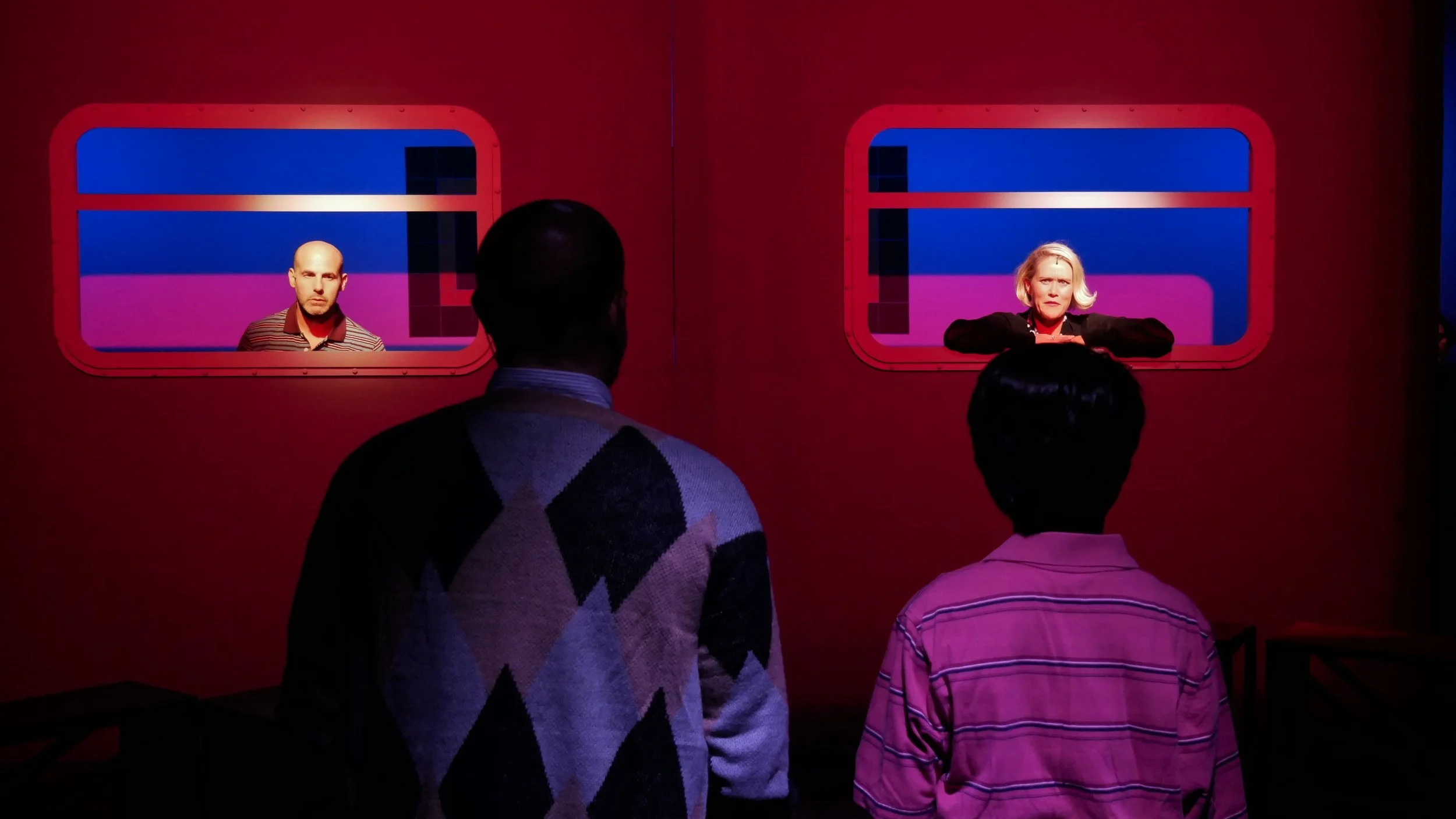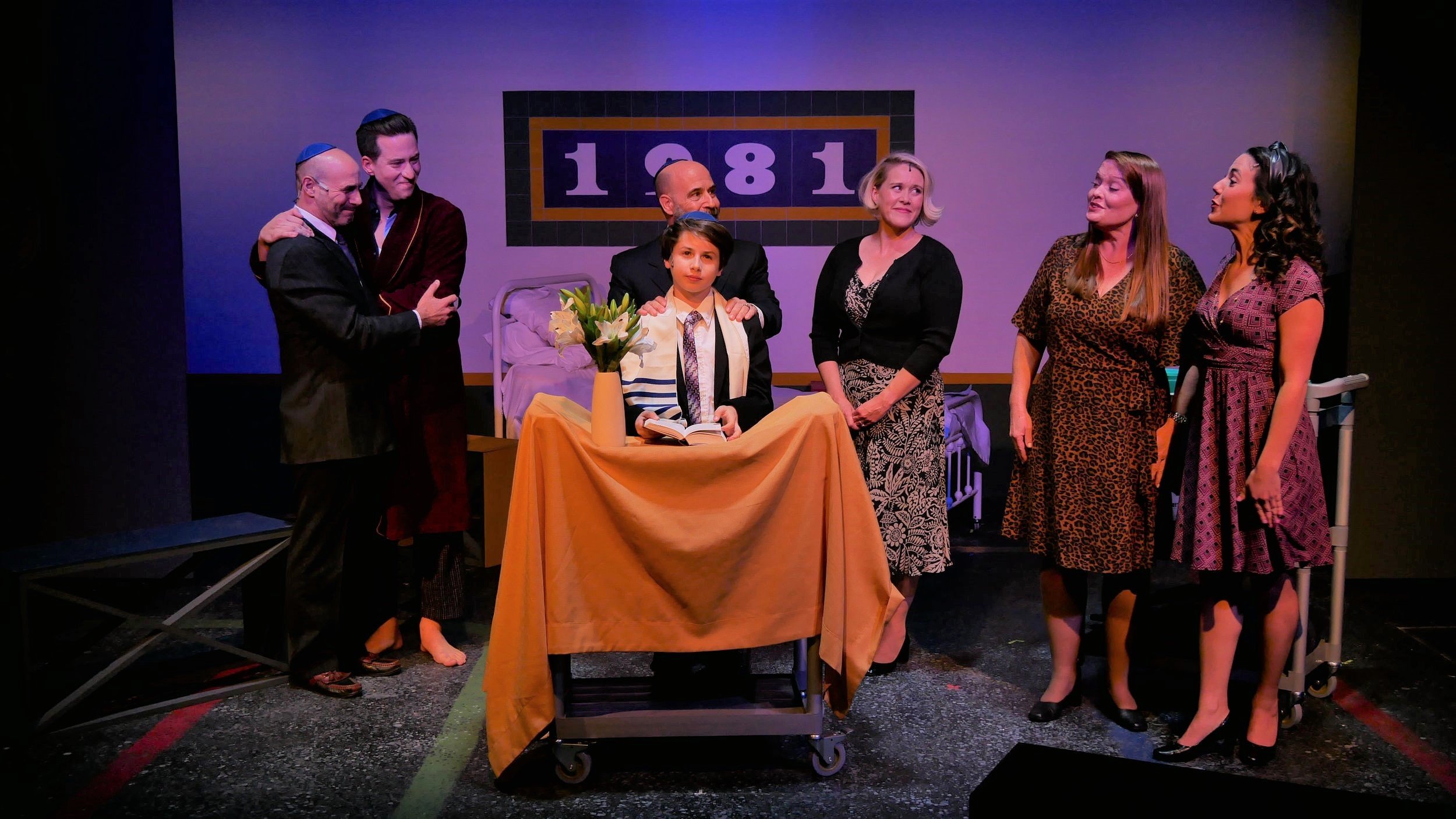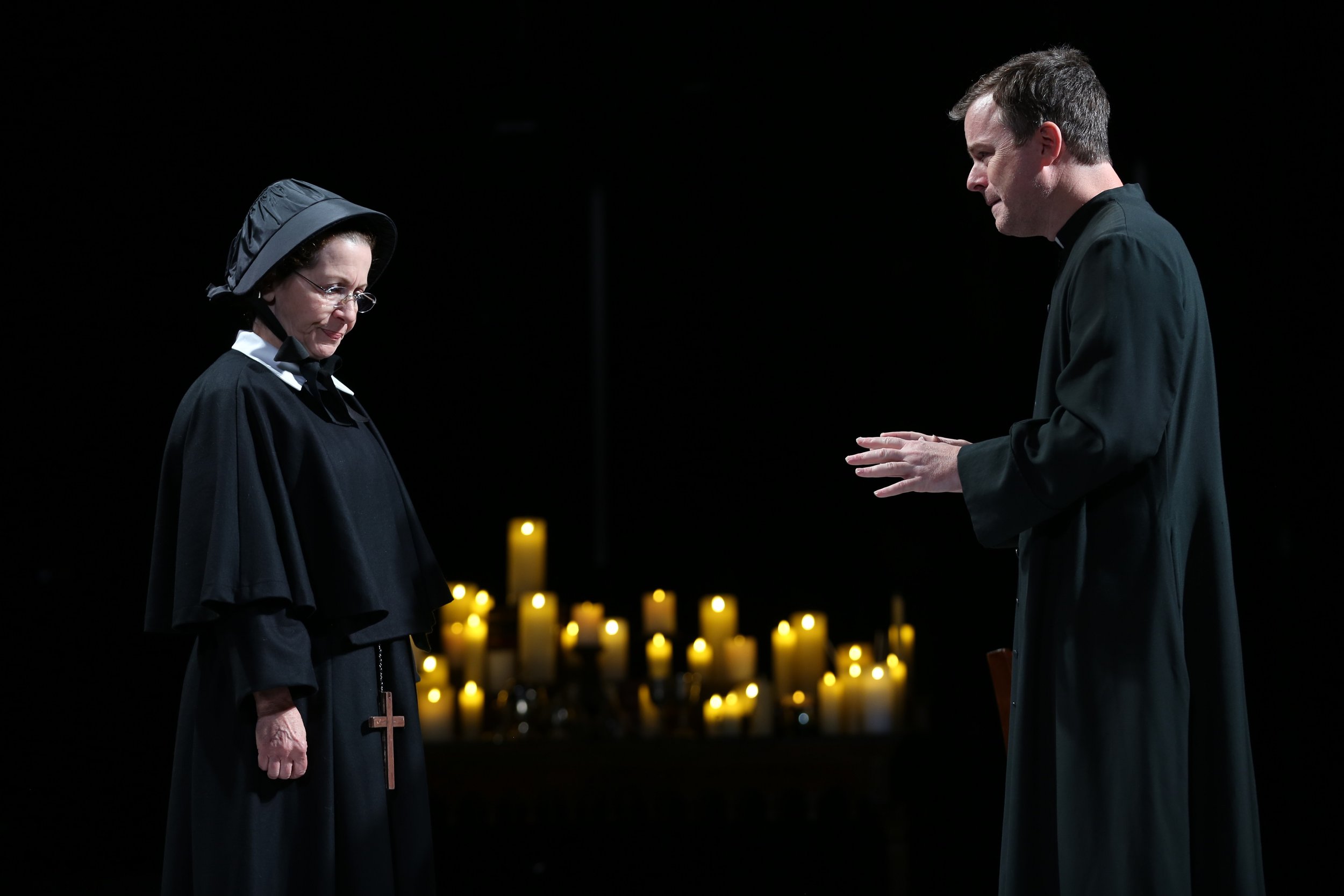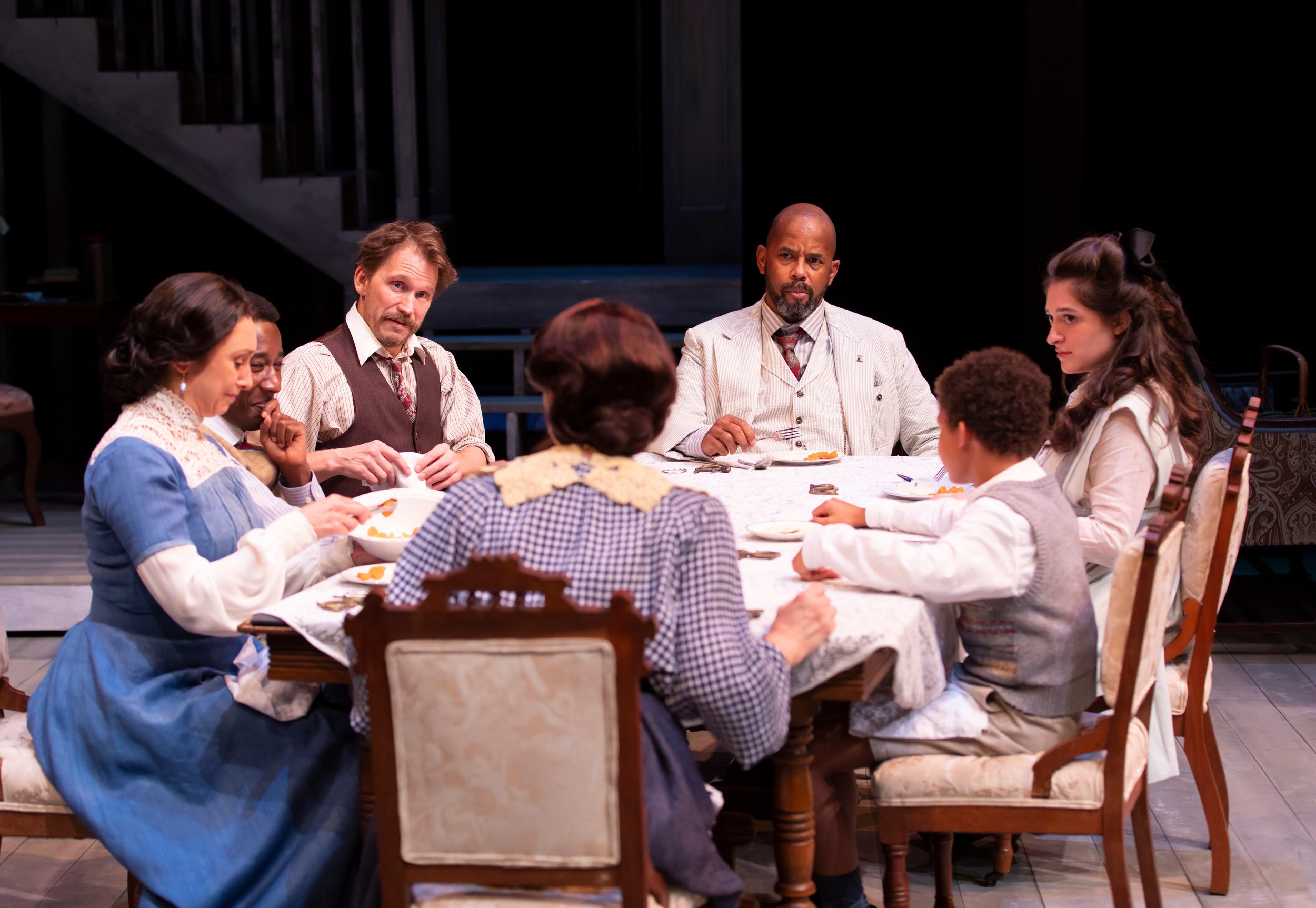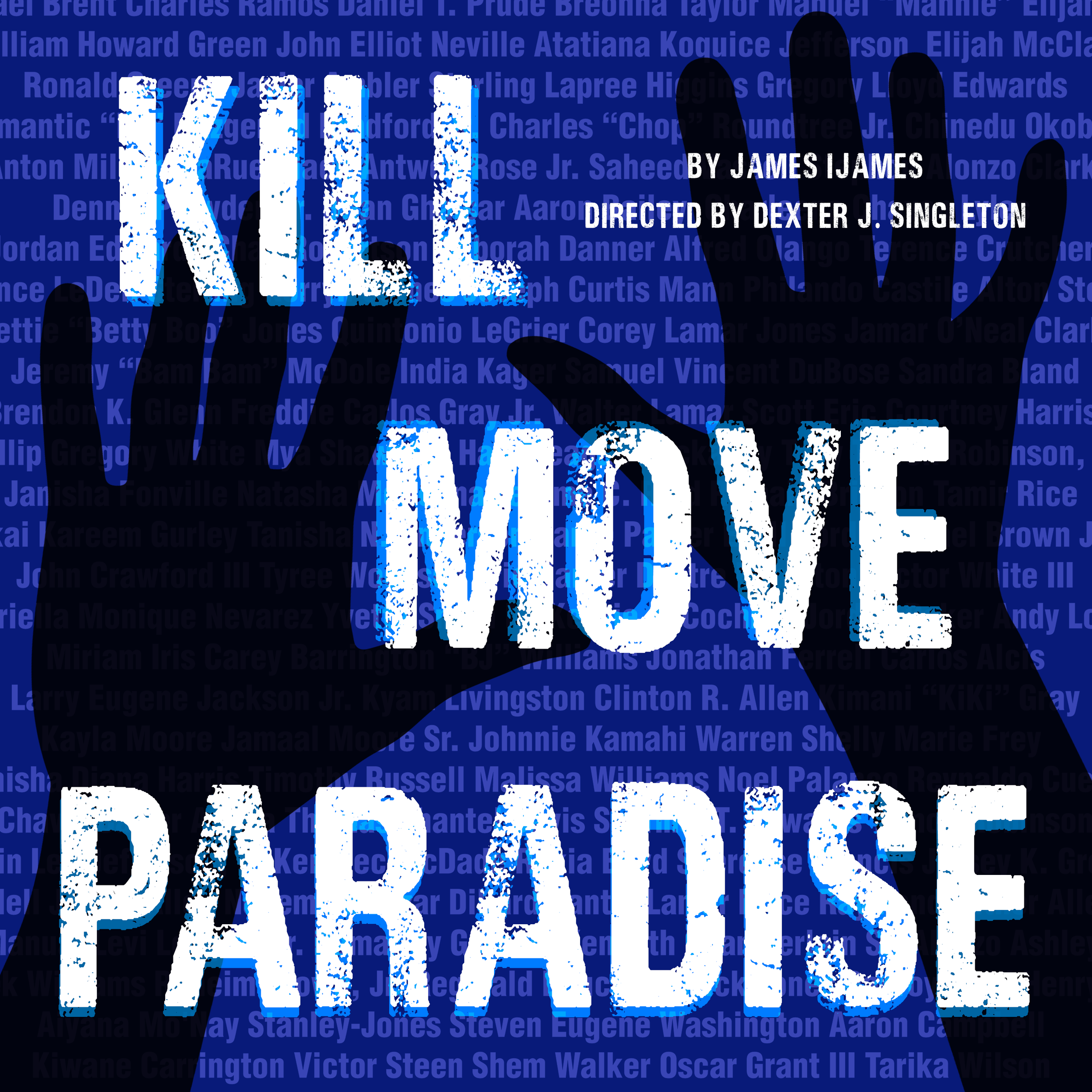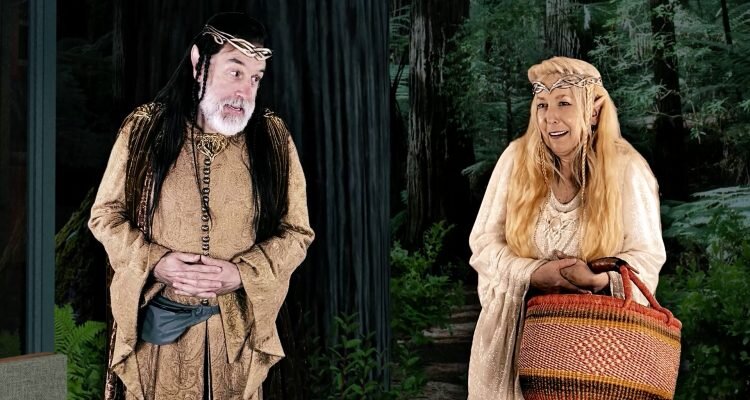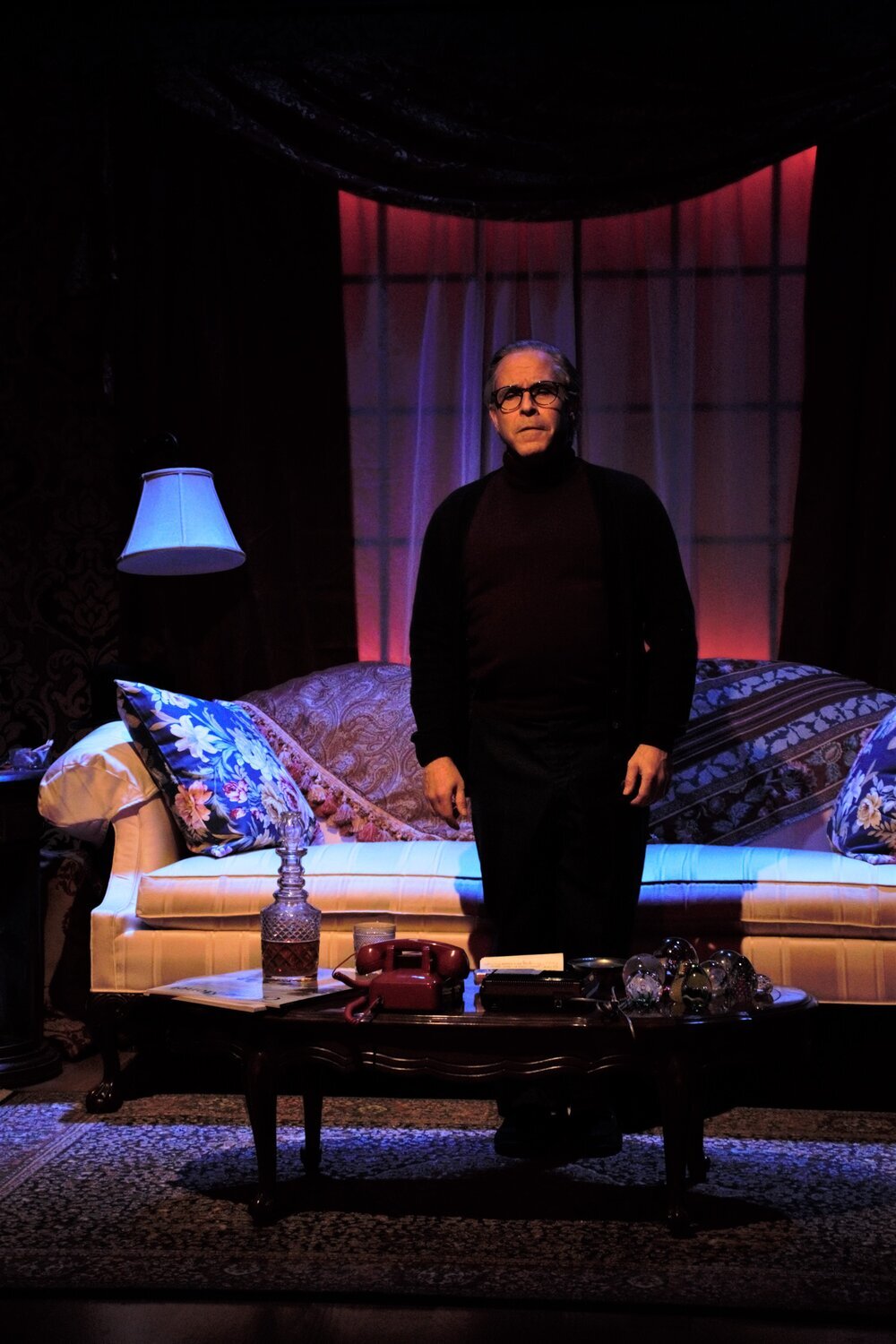Review of The Winter’s Tale, Hartford Stage
What better to do on William Shakespeare Day (April 23—date of the Bard’s death and, traditionally, date of his birth) than to see a Shakespeare play? Hartford Stage Artistic Director Melia Bensussen has mounted the first Shakespeare production at the theater since the shutdowns of 2020. It’s a welcome return and an interesting choice of play.
The Winter’s Tale presents a heady mix that incorporates tragic conflict, dramatic shifts and reversals, antic songs, stressed lovers, comic interactions and magical reconciliation. Bensussen’s direction is straightforward and aimed to help viewers focus on the action. There is little of the lengthy speechifying that is so key in many of Shakespeare’s plays; here, there is much more interaction than introspection. Nor is there much of the anachronism that directors often like to visit upon Shakespeare so as to “bring him up to date.” Bensussen’s approach suggests that the play is intriguing enough to be mounted in its unique spirit of theatrical variation.
Polixenes (Omar Robinson), Hermione (Jamie Ann Romero); background: Leontes (Nathan Darrow), Mamillius (Jotham Burrello) in The Winter’s Tale at Hartford Stage, directed by Melia Bensussen (photo by T. Charles Erickson)
The story concerns Leontes, King of Sicilia (Nathan Darrow), and his friendship with, and sudden passionate jealousy of, Polixenes, King of Bohemia (Omar Robinson). They’ve been friends since boyhood, but, during Polixenes’ protracted visit to Sicilia, Leontes takes it into his head that Polixenes has been lover to Queen Hermione (Jamie Ann Romero), insisting that the child she is pregnant with was sired by Polixenes rather than himself. Leontes is even a little doubtful about his beloved son Mamillius (Jotham Burrello). Leontes is so far gone, he plots his friend’s death, the death of Hermione’s child, newborn, and scorns an oracle from Apollo that tells him he’s completely wrong about everything. His courtiers try to dissuade him, and Paulina (Lana Young), Hermione’s staunch defender, gets into a fierce argument with Leontes, to—seemingly—no avail.
Paulina (Lana Young) and Leontes (Nathan Darrow) in The Winter’s Tale, at Hartford Stage, directed by Melia Bensussen (photo by T. Charles Erickson)
The jealousy plot occupies the first two Acts which move at considerable speed because what might have filled an entire tragedy is here simply the set-up for the second half of the play—most of which takes place in Bohemia, sixteen years later. The Sicilian segments are ably played by Nathan Darrow, as a truculent, tormented Leontes; Jamie Ann Romero as a winningly girlish Hermione who transforms into a figure of great dignity and stoicism; Omar Robinson as a benign friend who has to swerve into hasty self-preservation; Lana Young as a feisty Paulina who speaks with the most moral force in the play; and, in a role easy to overlook, Carmen Lacivita as Camillo, a “king’s man” who switches which king he serves and is a model of probity in one of those radical shifts otherwise known as a Shakespearean plot; only Jeremy Webb’s Antigonus seems a bit more colorless than required—but that may be due to a deliberate differentiation from Webb’s turn as the much more broadly played Shepherd in Bohemia who finds Perdita (Delfin Gökhan Meehan), the abandoned child of Leontes and Hermione.
The cast of The Winter’s Tale, in Bohemia, at Hartford Stage, directed by Melia Bensussen (photo by T. Charles Erickson)
The Bohemia segments switch into a somewhat overstated comic tone to underline the fact that the mood of the play has changed drastically. It works for Webb’s Shepherd and son—called “Clown” in the list of characters—enacted by John Maddaloni with great energy and spirit. It works less well for our lovers, Perdita and Florizel (Daniel Davila Jr.), the latter trying to give too much contemporary swagger to his sound. The lovers are young, yes, but that doesn’t mean they are our youthful contemporaries. That element hovers about Perdita as well, so that her main scene feels pitched to score more mirth than it contains.
Clown/Shepherd’s Son (John Maddaloni), Autolycus (Pearl Rhein) in The Winter’s Tale, Hartford Stage, directed by Melia Bensussen (photo by T. Charles Erickson)
No matter, the winning figure of the Bohemia segments is Pearl Rhein’s memorable Autolycus. Rhein has the full measure of this engaging, theatrical, slippery pick-pocket, so that the Bohemia segments have not only the requisite comic feel but also the welcome musicality—as Autolycus is a tuneful rogue (applause to Pornchanok Kanchanabanca’s music and sound design and music director Liam Bellman-Sharpe). The lightness of the stage business, including a song of rivals Mopsa (Ama Laura Santana) and Dorcas (Hannah Moore), shows as it should Shakespeare’s way with comic timing.
The play winds up in Sicilia, as it must, to come full circle and right as many wrongs as possible. But Shakespeare’s idea was to let some major moments of melodrama happen offstage, narrated by comic figures who keep saying “words fail to describe,” even as they try to. It works on the page and could work onstage with enough comic wit to bring it off. Bensussen instead uses a neat device wherein the characters whose actions are being narrated do the narrating—which helps greatly those viewers for whom some of the names and relations might otherwise prove slippery.
Hermione (Jamie Ann Romero), Leontes (Nathan Darrow) in The Winter’s Tale, Hartford Stage, directed by Melia Bensussen (photo by T. Charles Erickson)
The great reveal scene also comes off well, helped by staging that sets the statue of Hermione in a special space behind and above the main playing area. Otherwise, Cameron Anderson’s set design is sparse and open, with a tall leafless tree that later lowers and flowers. If quibble I must, I’ll direct my discontent at Whitney Locher’s costumes: there’s a handsome Edwardian cast to it all that makes these characters seem to belong in a Merchant-Ivory production, with Paulina looking a bit the schoolmarm; one might say that any play that gives credence to the ancient god Apollo might be best set a bit more pre-modern. And Autolycus in long underwear?
Perdita (Delfin Gökhan Meehan), Hermione (Jamie Ann Romero) in The Winter’s Tale, Hartford Stage, directed by Melia Bensussen (photo by T. Charles Erickson)
Those visual disconnects (in my eyes anyway) aside, this is a vibrant, near textbook-perfect run at one of those plays that delights, dismays, confuses and convinces as only a playwright confident he can do as he likes would try to bring off. In the space between Act 2 and Act 3, Pearl Rhein, as Time, puts it succinctly: allow the liberties taken if you’ve ever spent time worse than this; if you never have, “he wishes earnestly you never may.” You could indeed spend your time much worse, and no doubt have. Shakespeare’s ghost need not worry: Hartford Stage’s production of The Winter’s Tale spends its time well.
The Winter’s Tale
By William Shakespeare
Directed by Melia Bensussen
Choreography: Misha Shields; Scenic Design: Cameron Anderson; Costume Design: Whitney Locher; Lighting Design: Evan Anderson; Original Music & Sound Design: Pornchanok Kanchanabanca; Music Director: Liam Bellman-Sharpe; Wig Design: Carissa Thorlakso; Fight Director: Ted Hewlett; Voice & Text Coach: Julie Foh; Dramaturg: Victoria Abrash; Production Stage Manager: Nicole Wiegert; Assistant Stage Manager: Theresa Stark
Cast: Andrew Black, Jotham Burrello, Nathan Darrow, Daniel Davila Jr., Carmen Lacivita, John Maddaloni, Delfin Gökhan Meehan, Hannah Moore, Pearl Rhein, Omar Robinson, Jamie Ann Romero, Ana Laura Santana, Carson Timmons, Jeremy Webb, Lana Young
Hartford Stage
April 13-May 7, 2023
